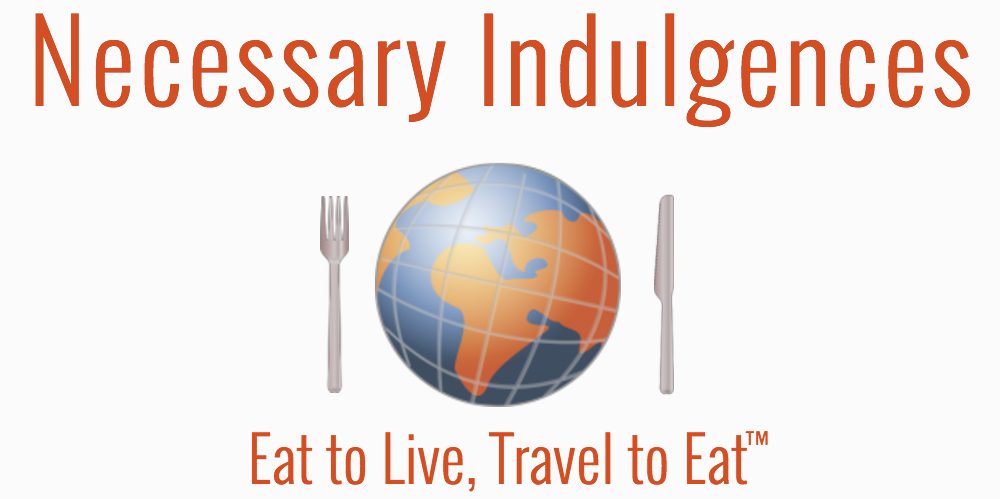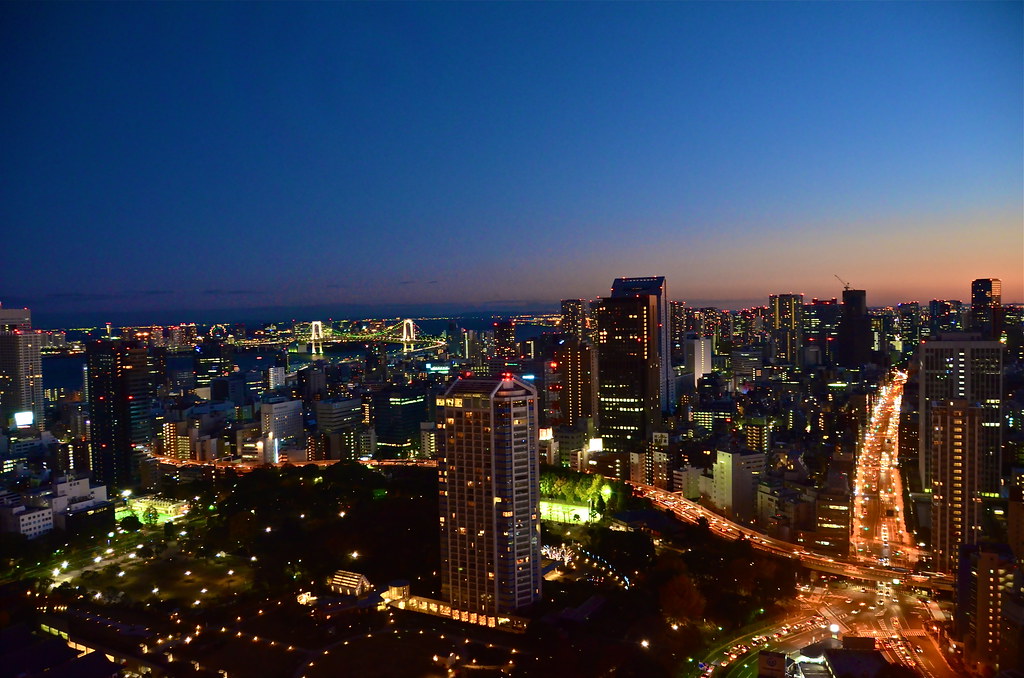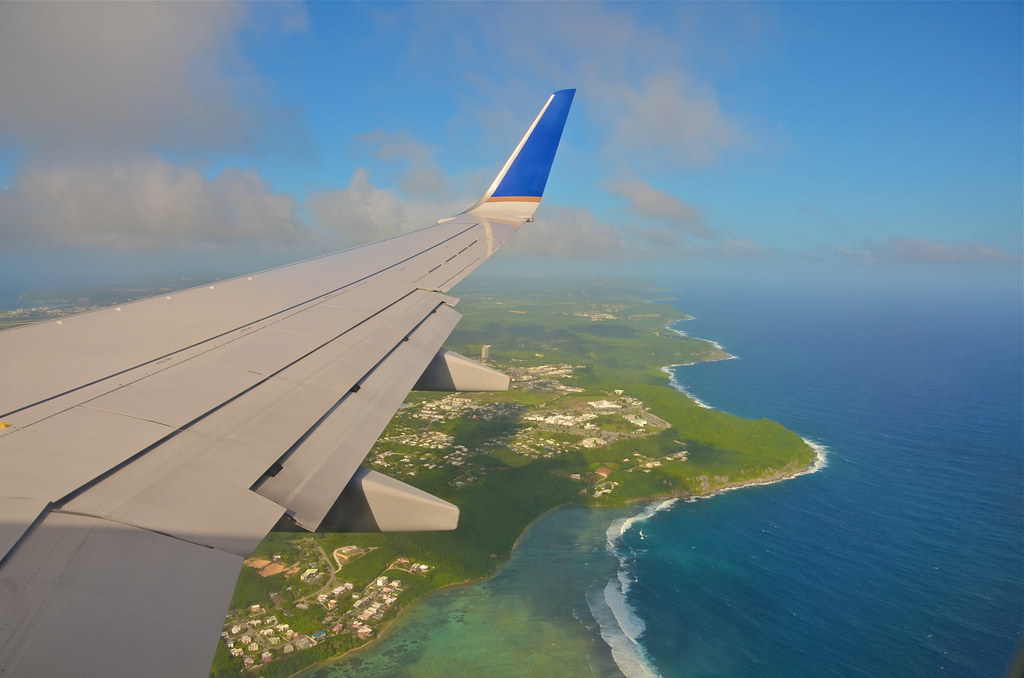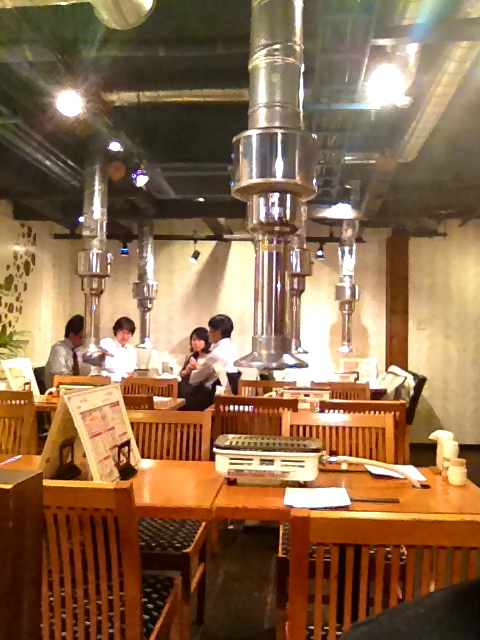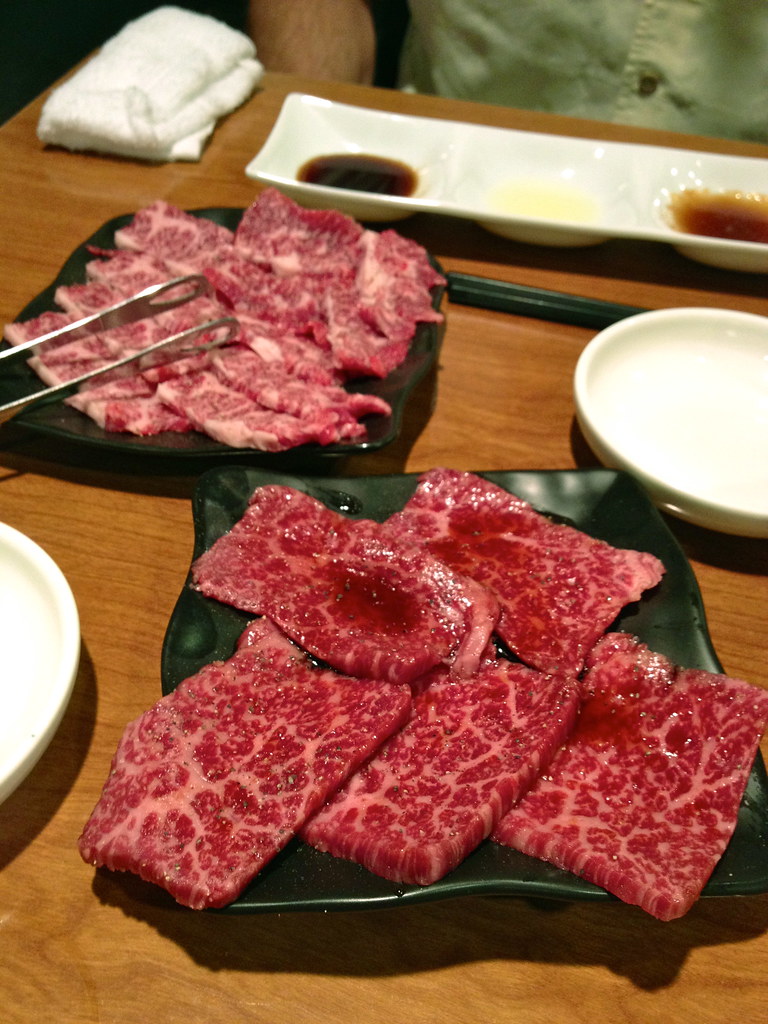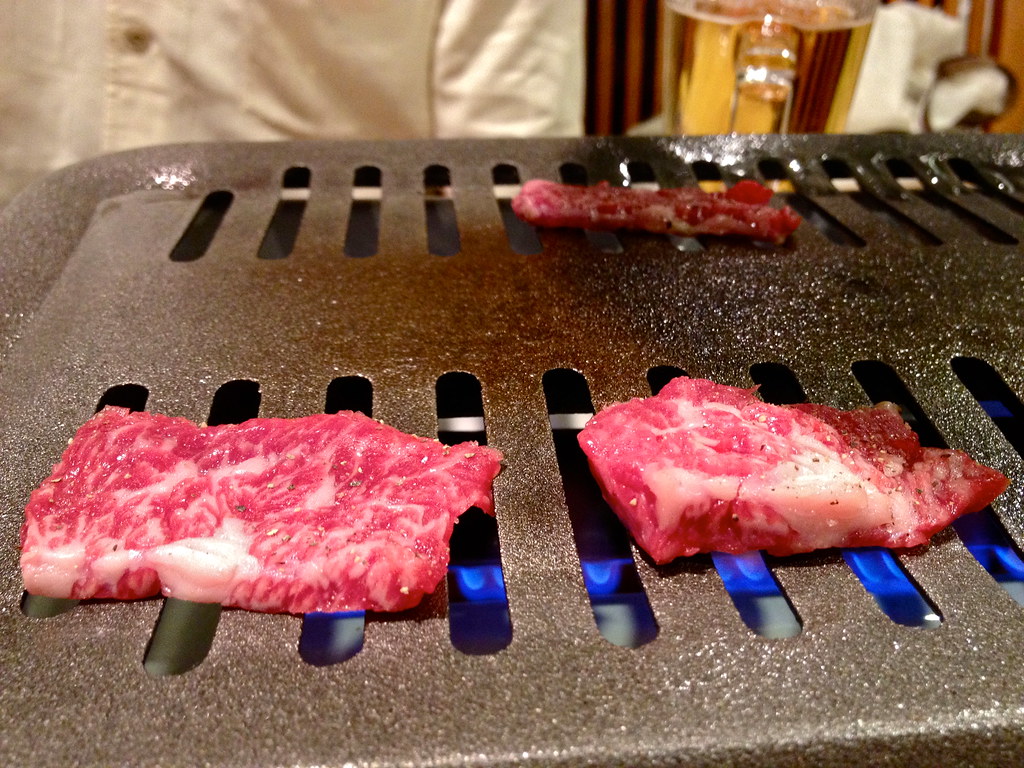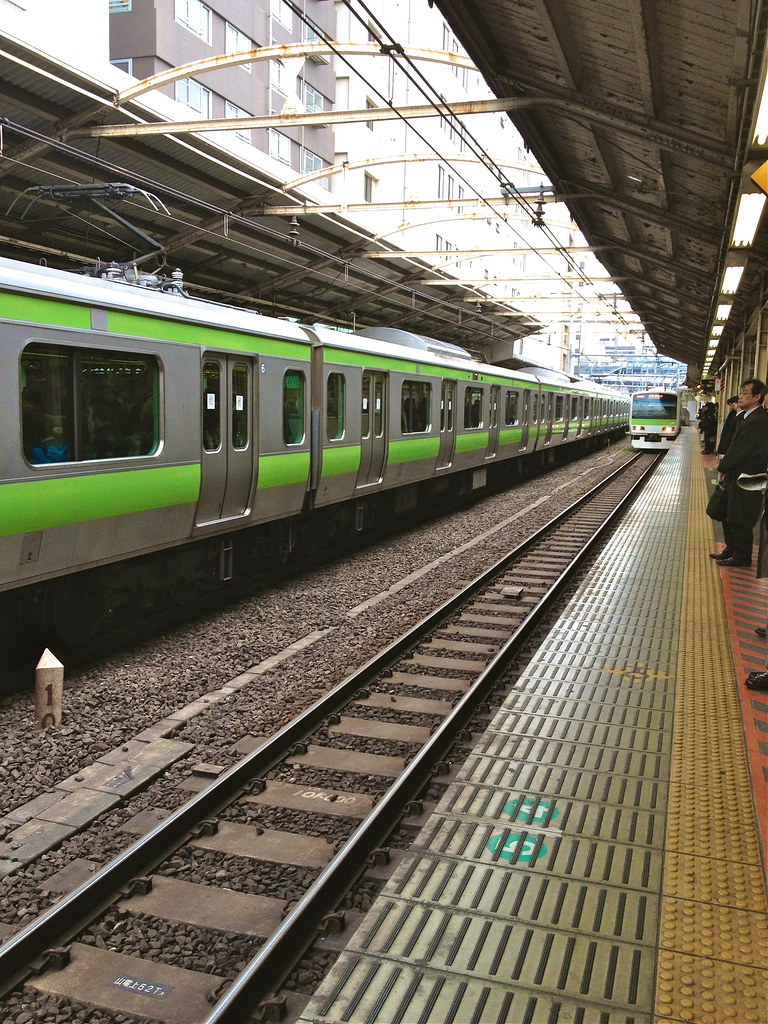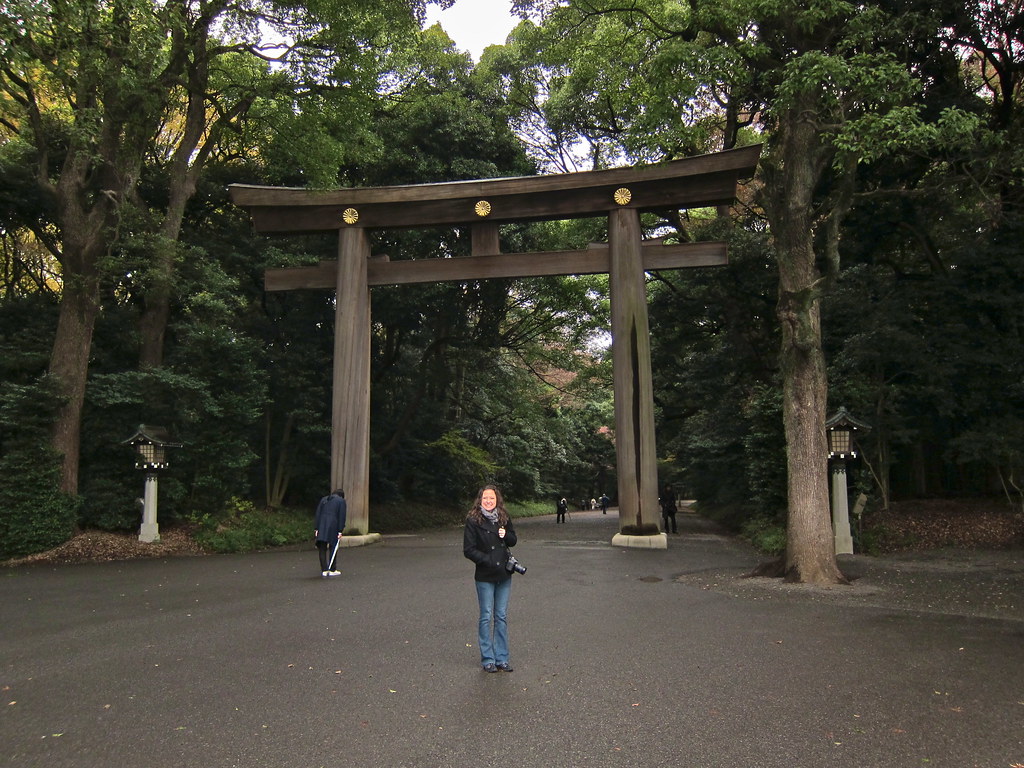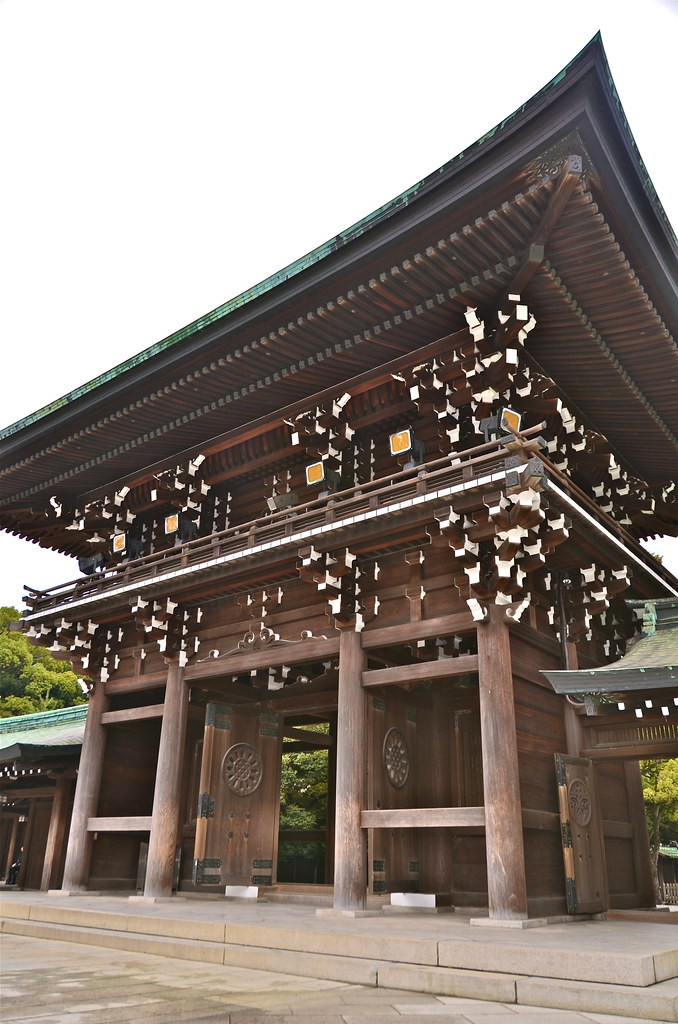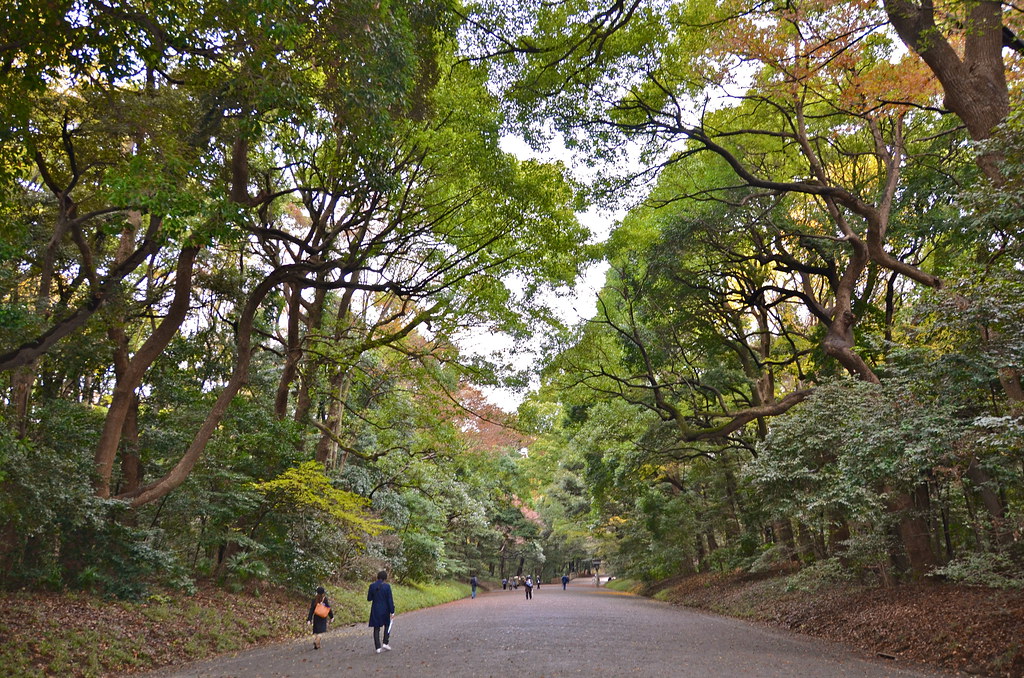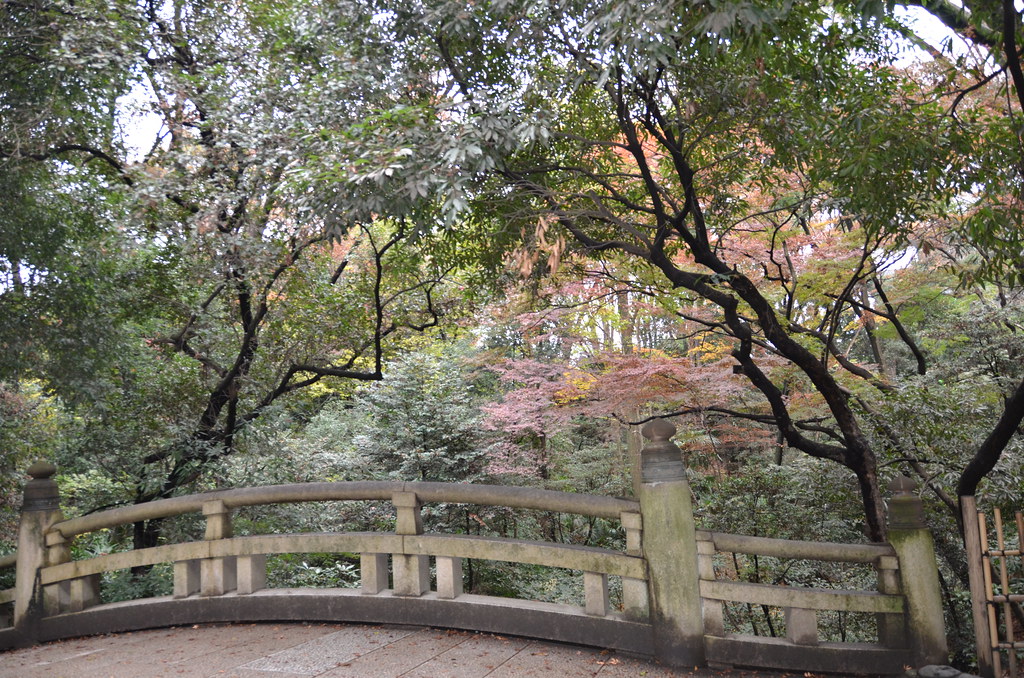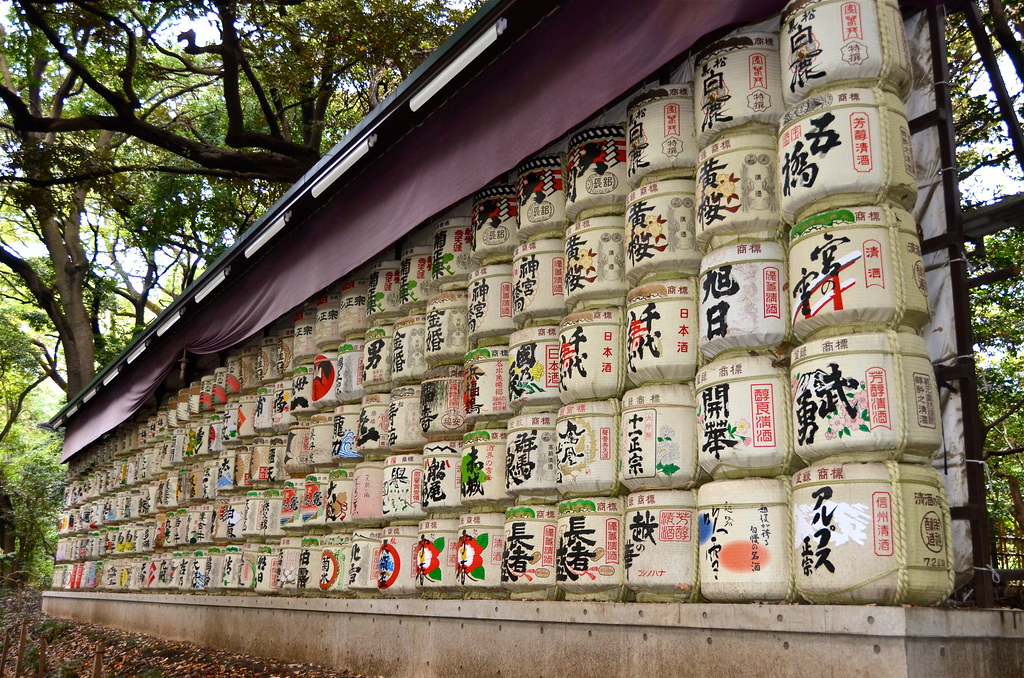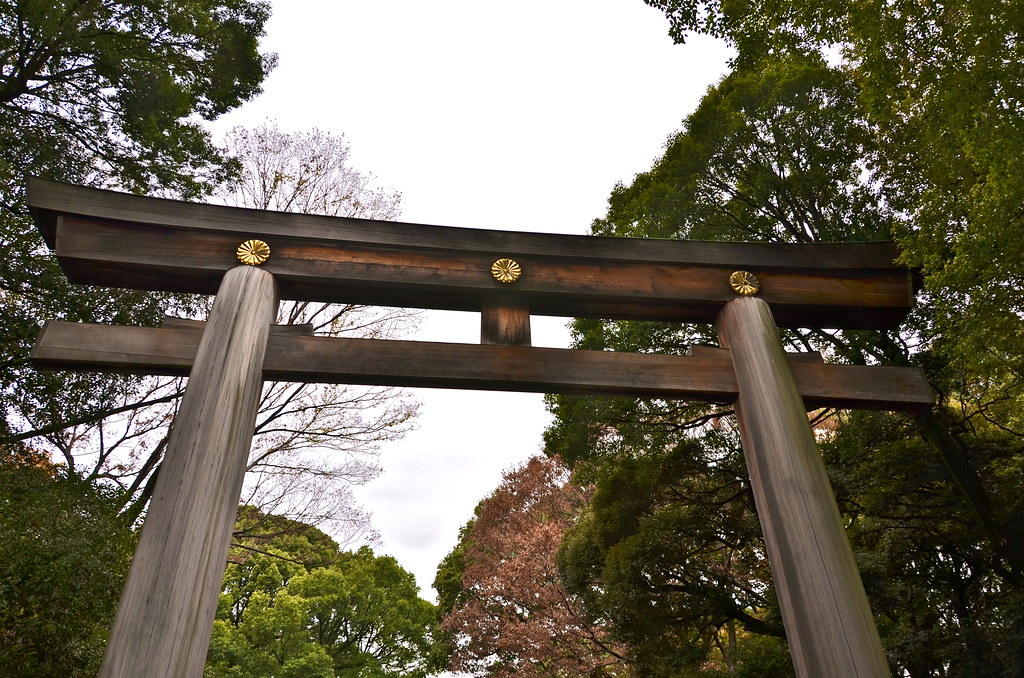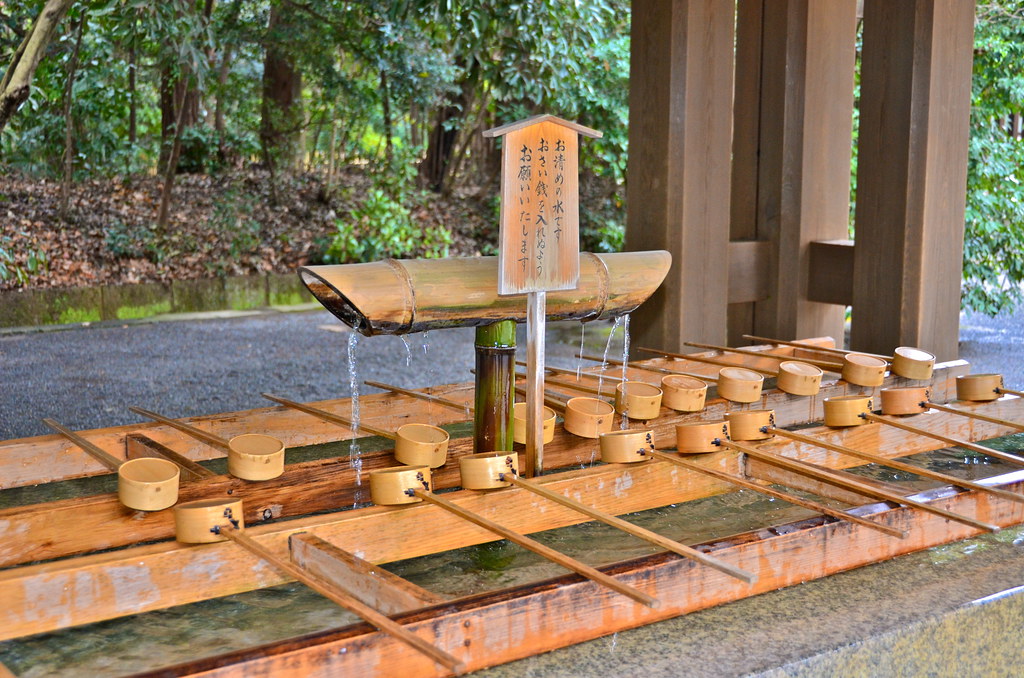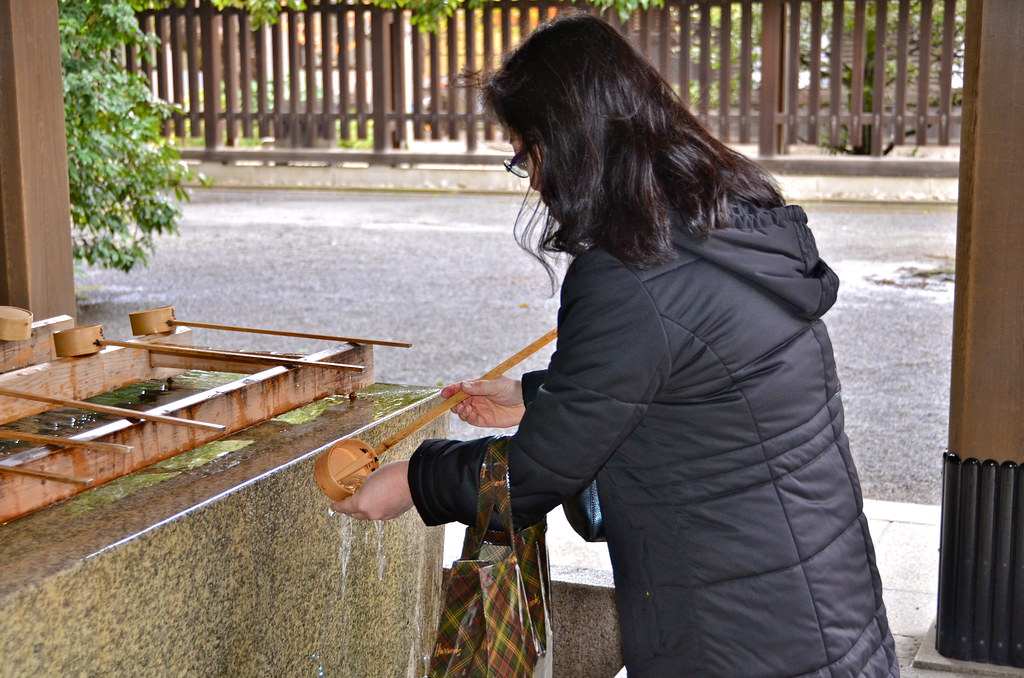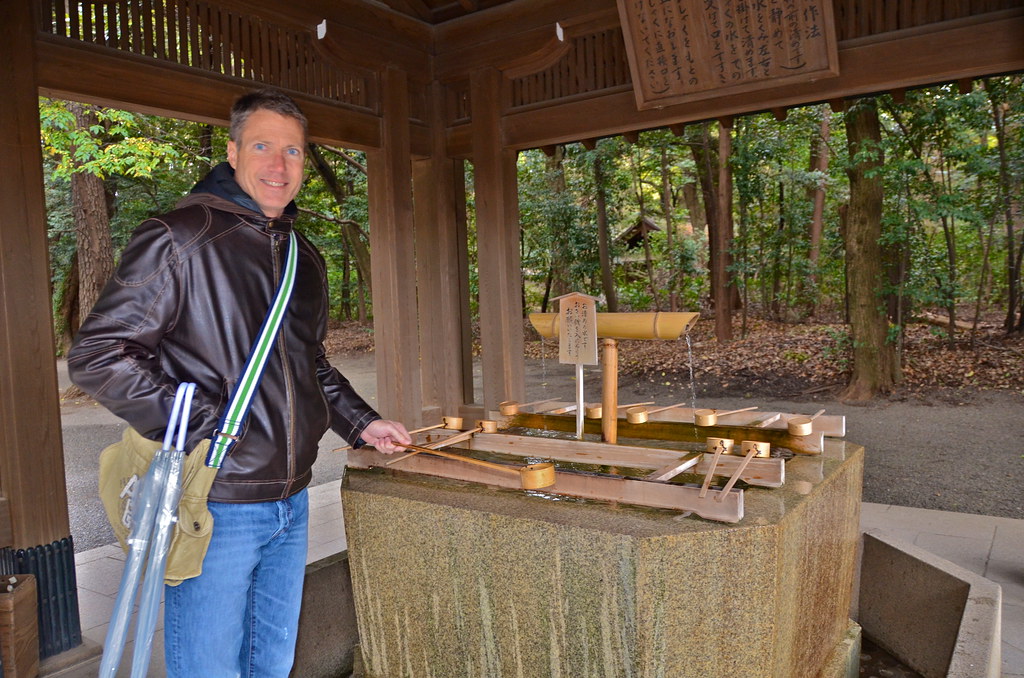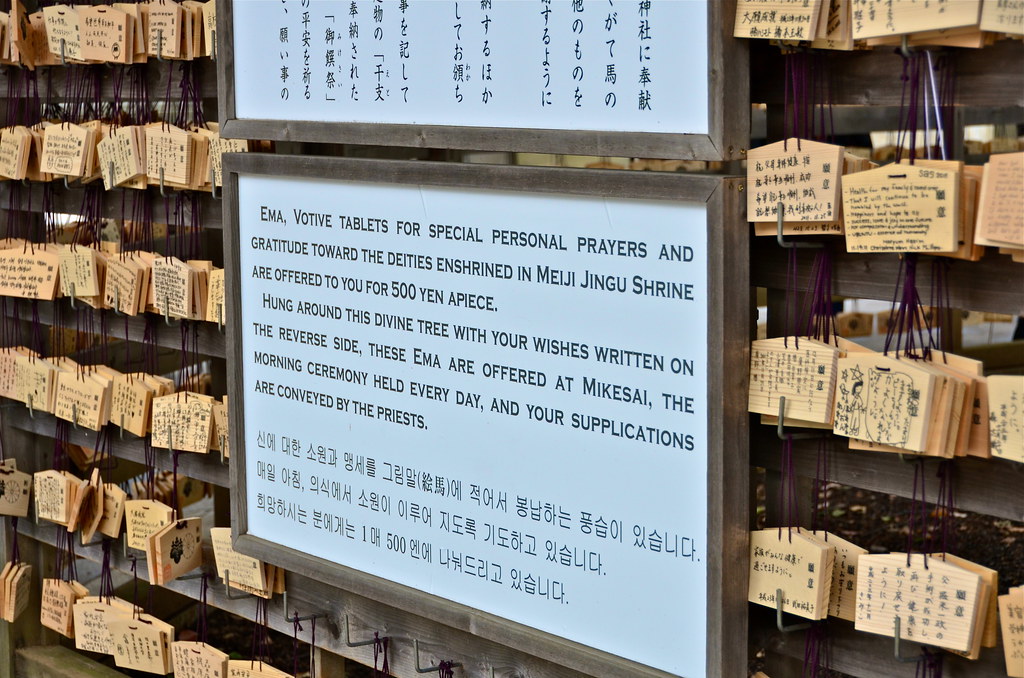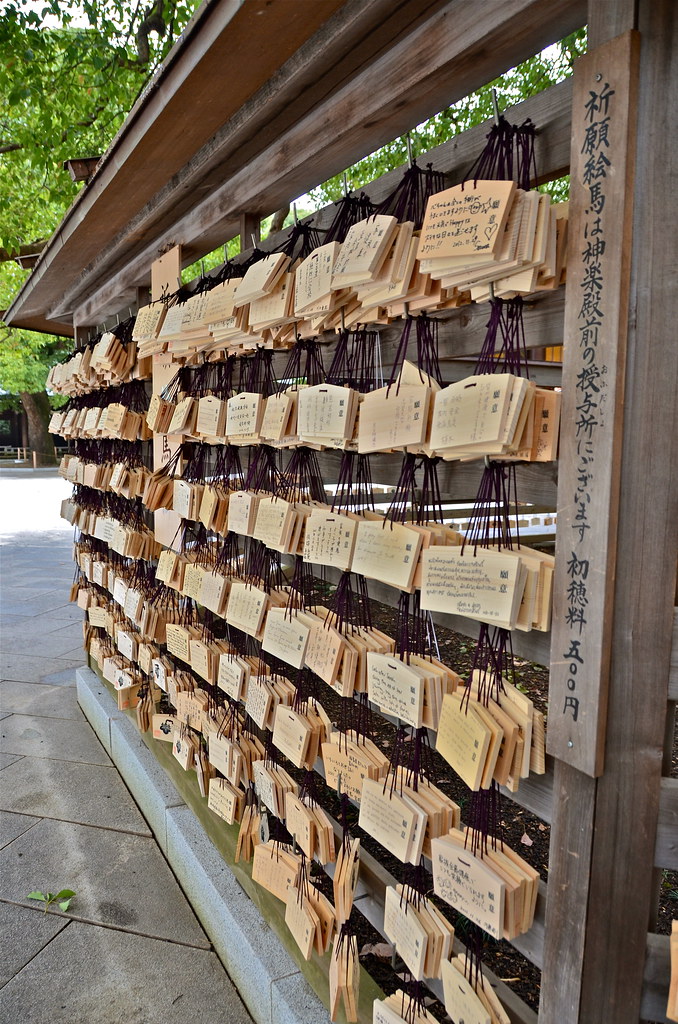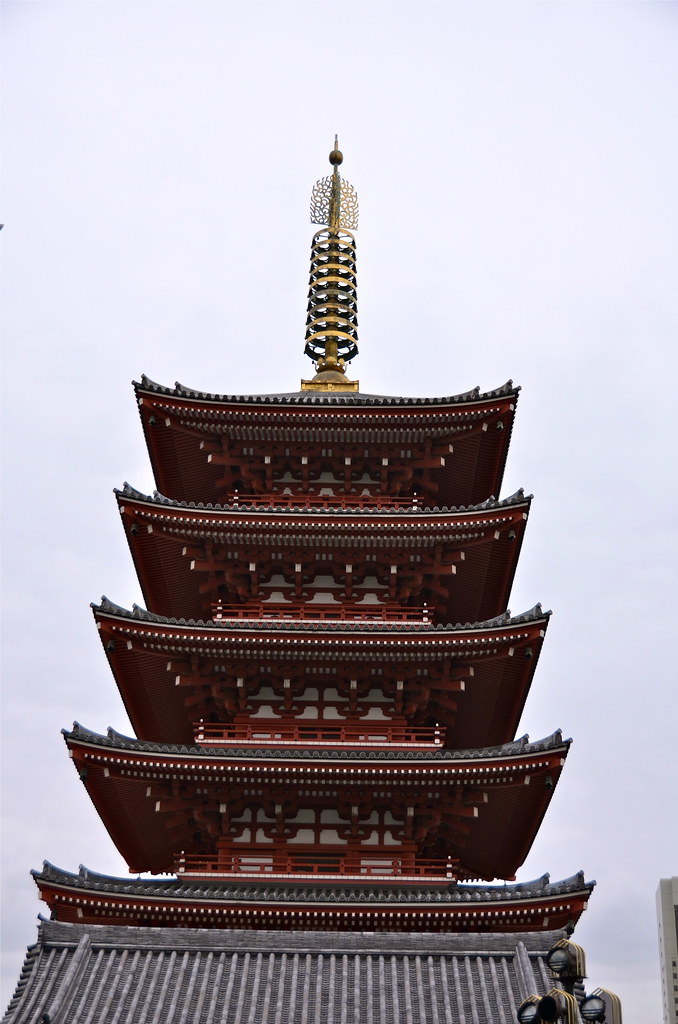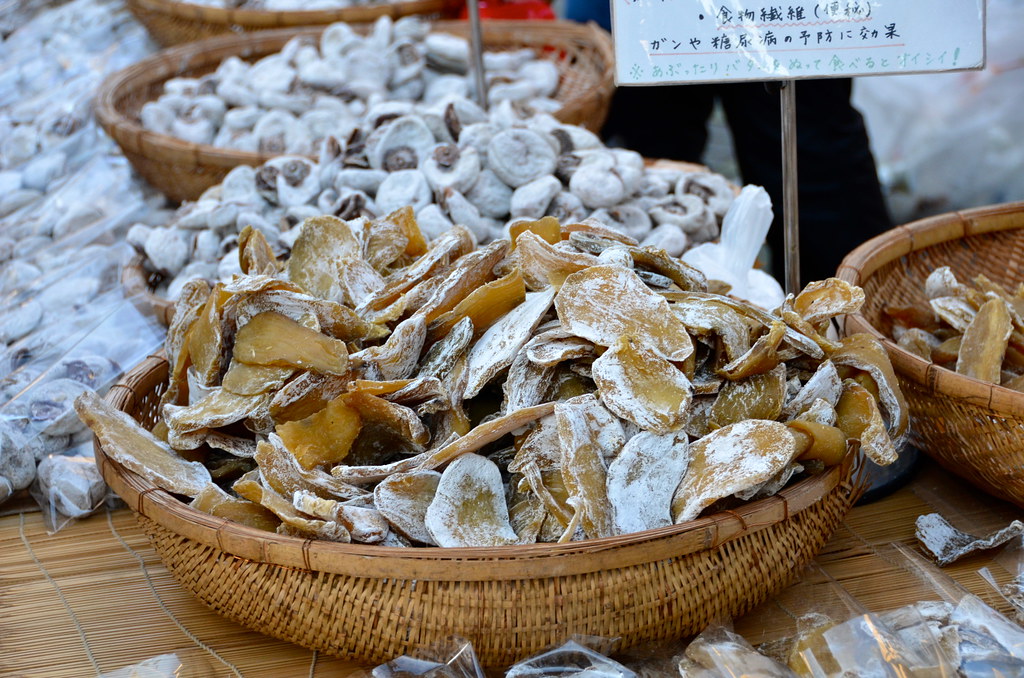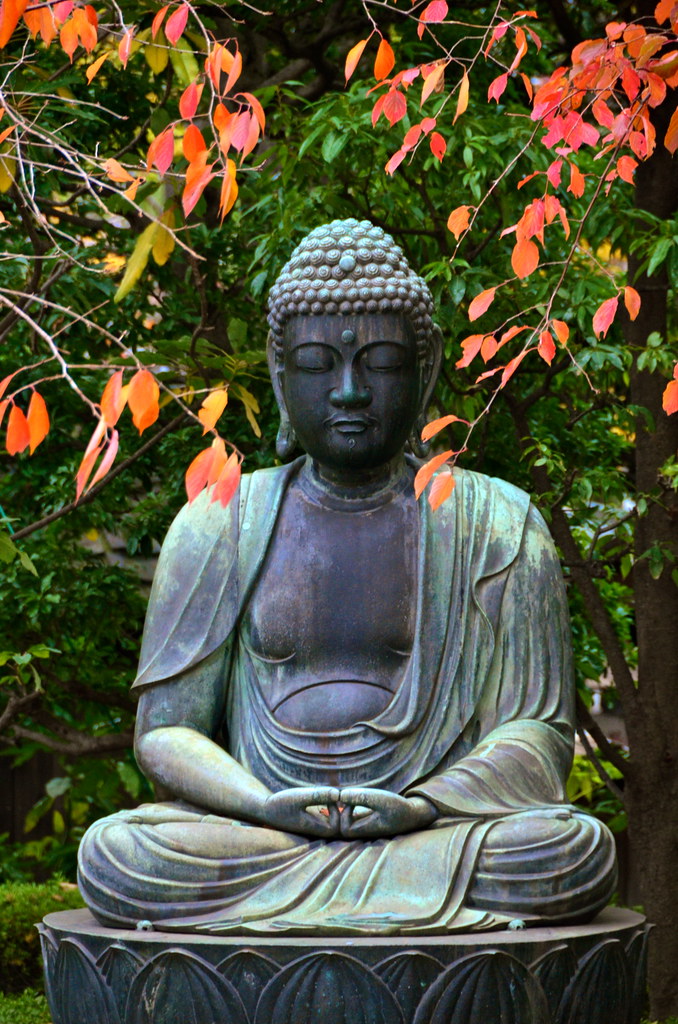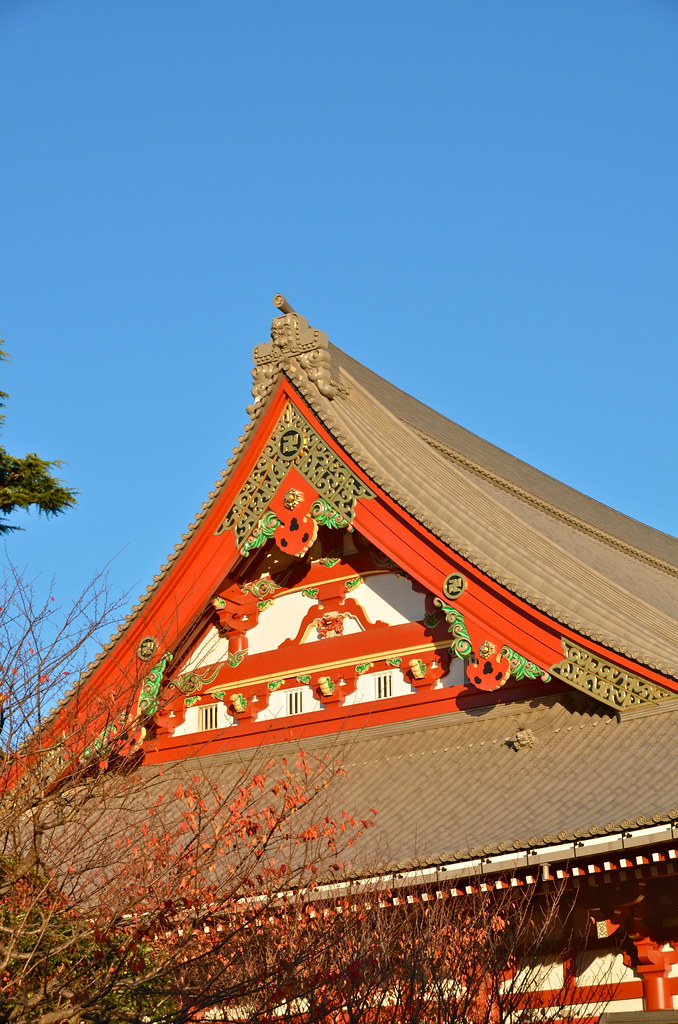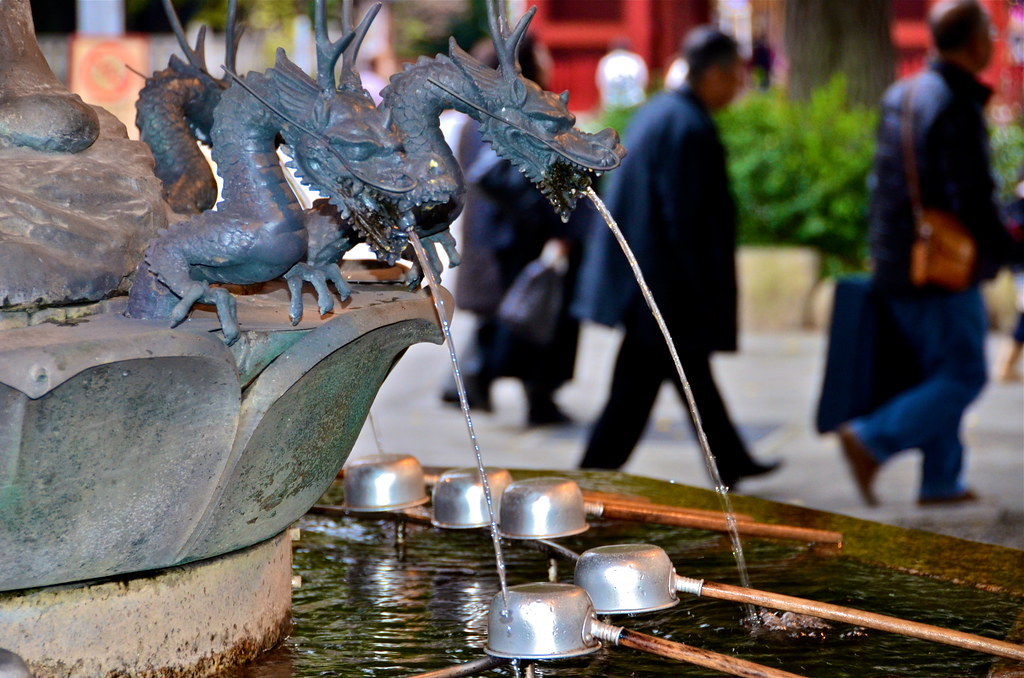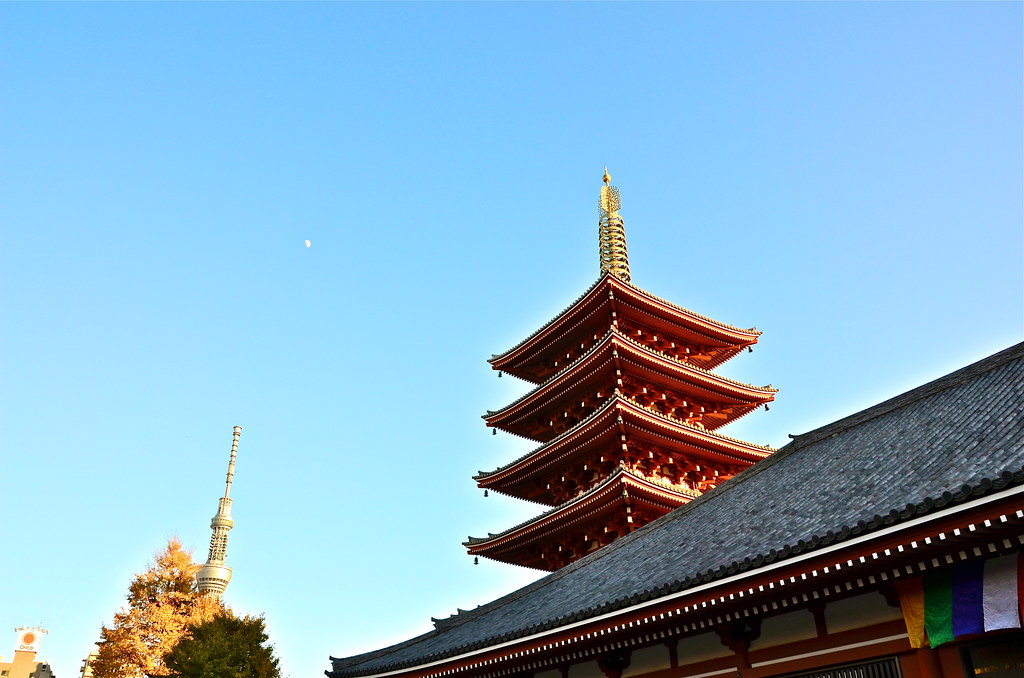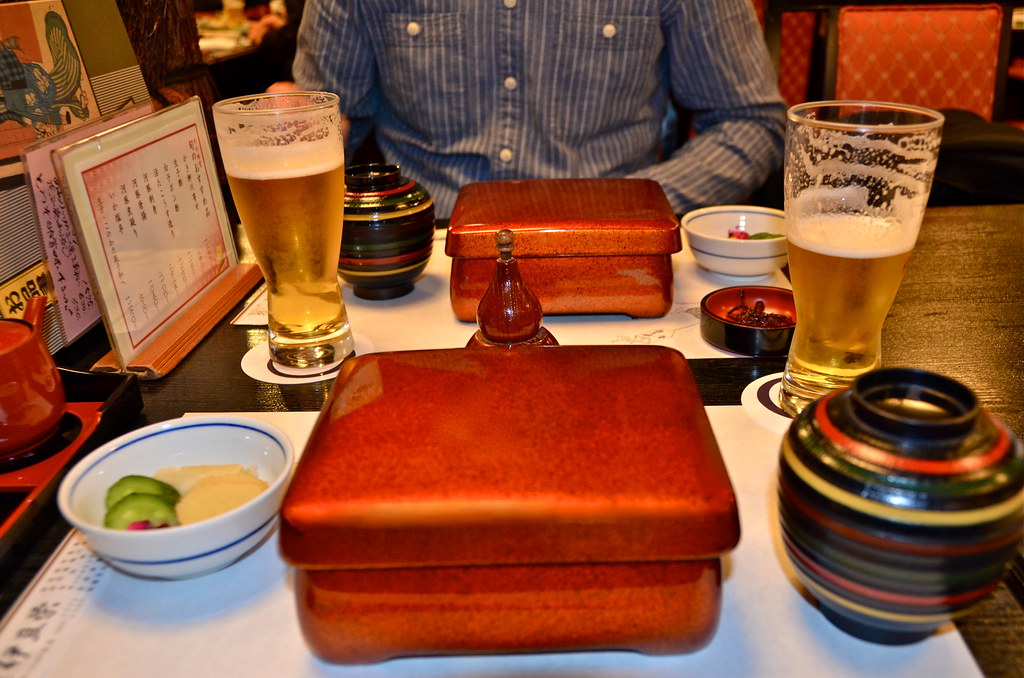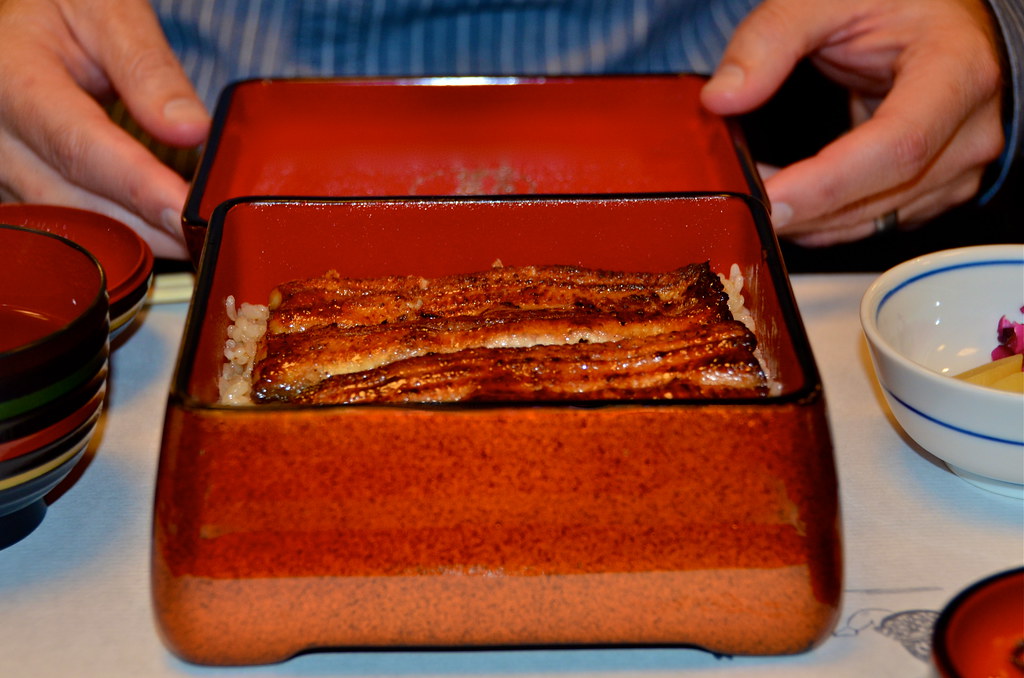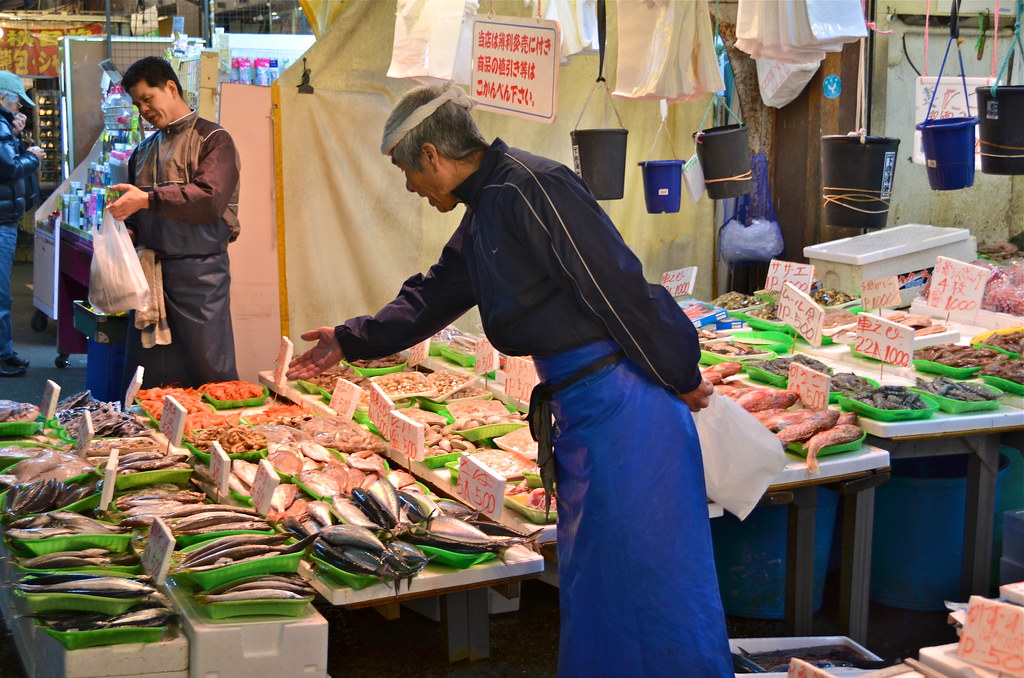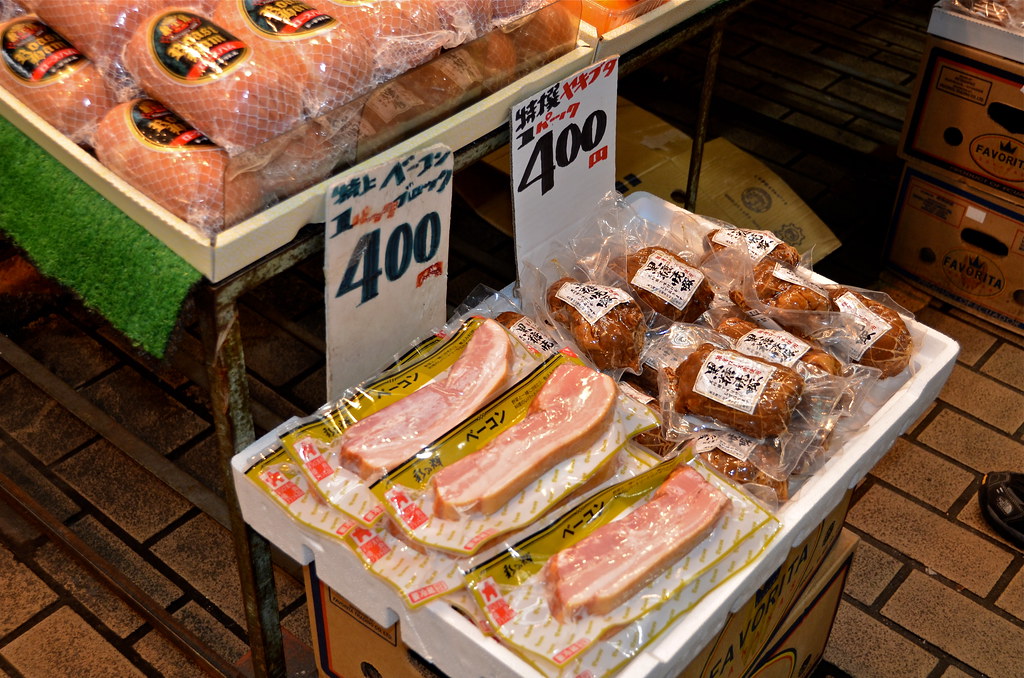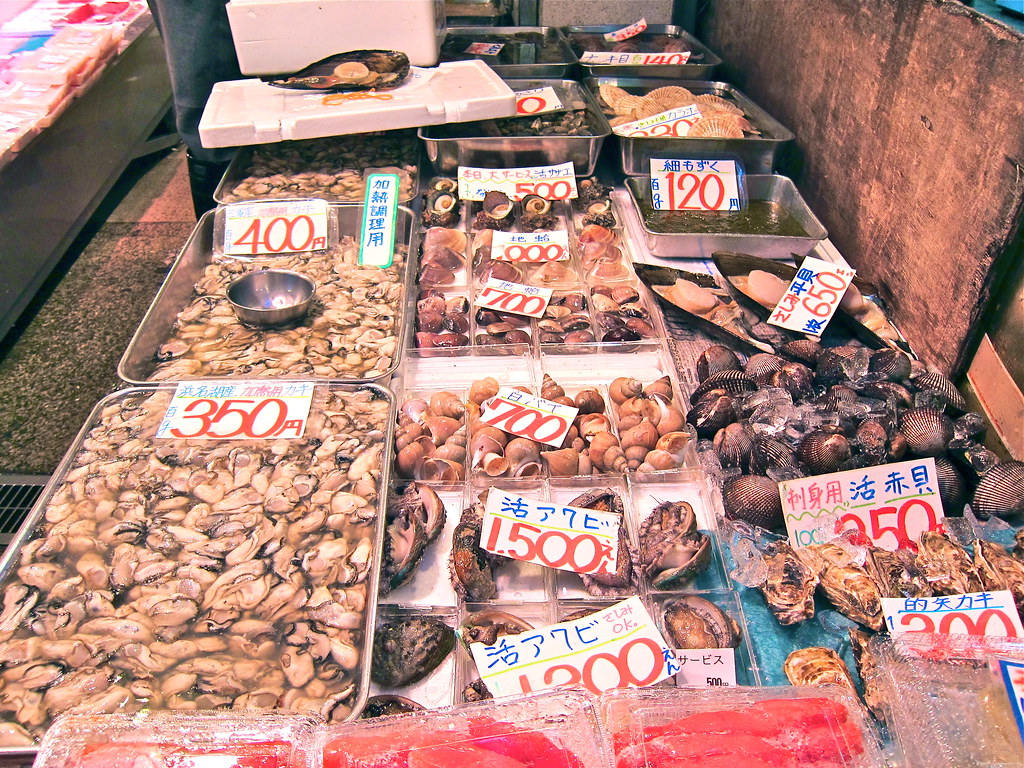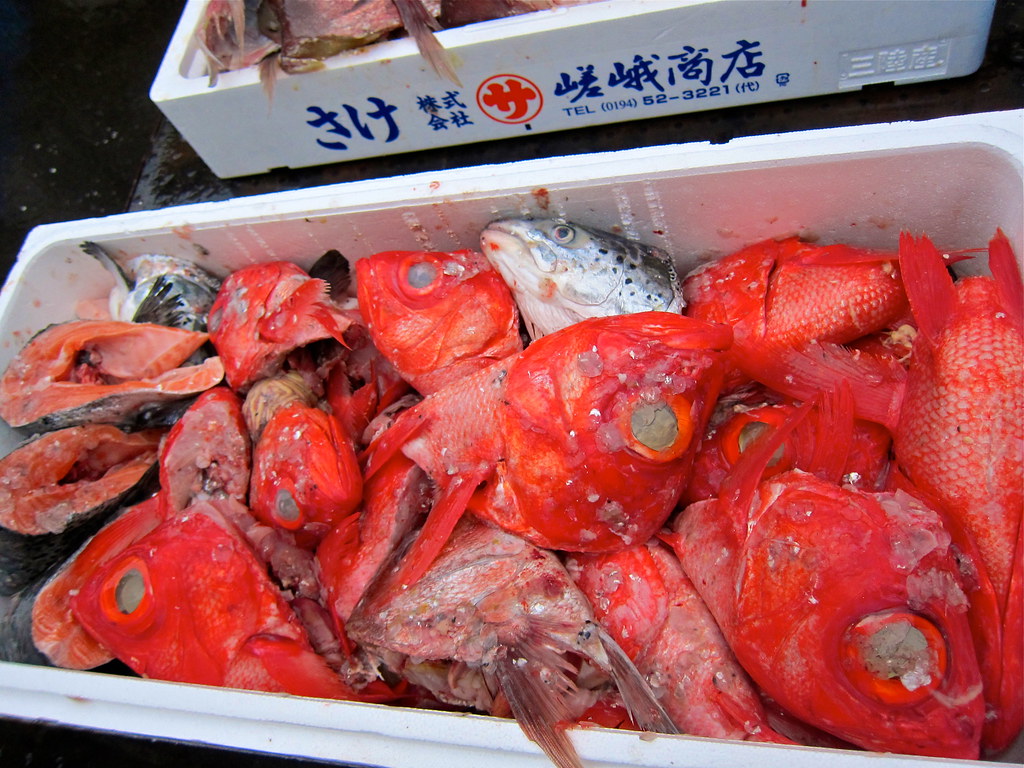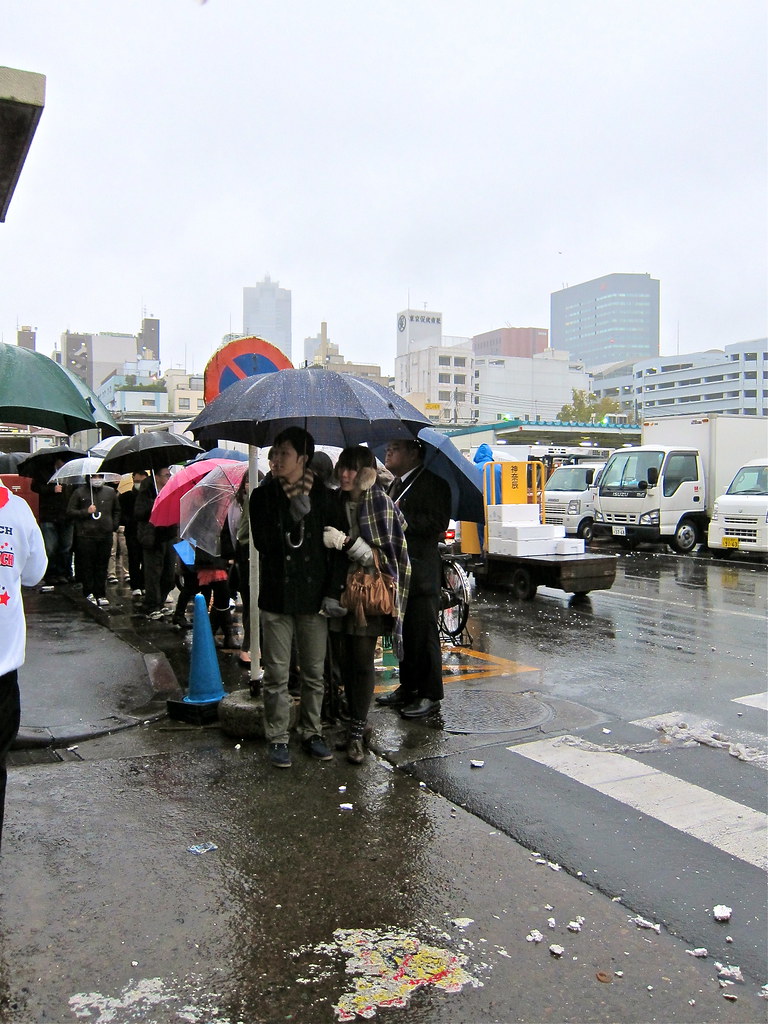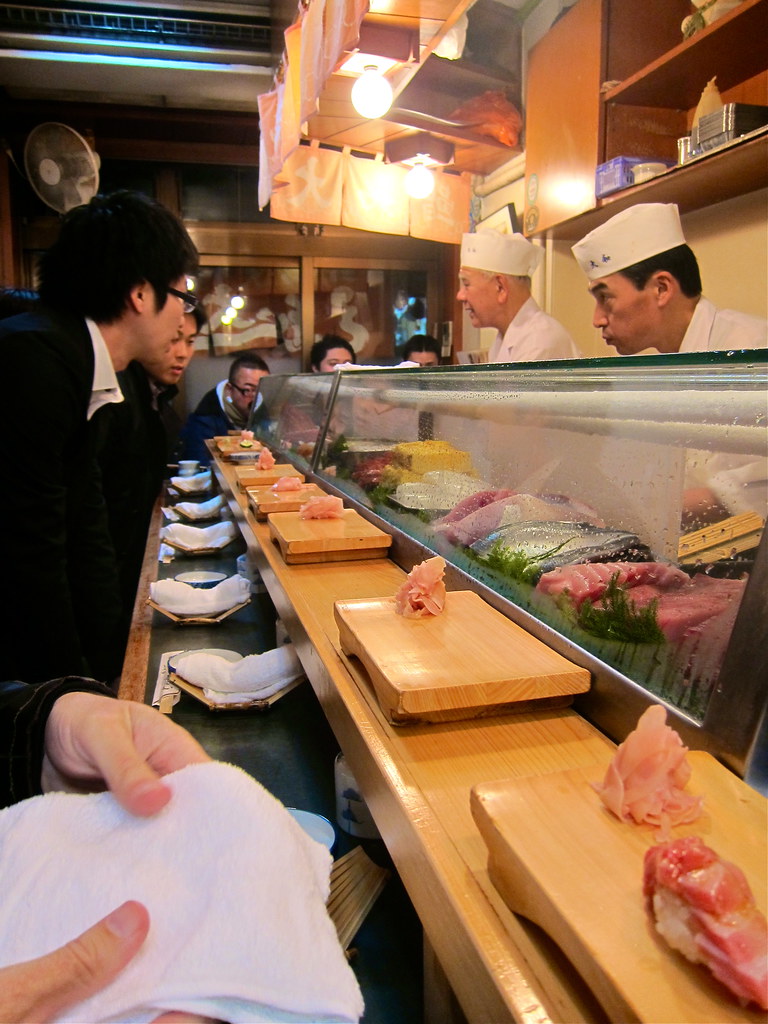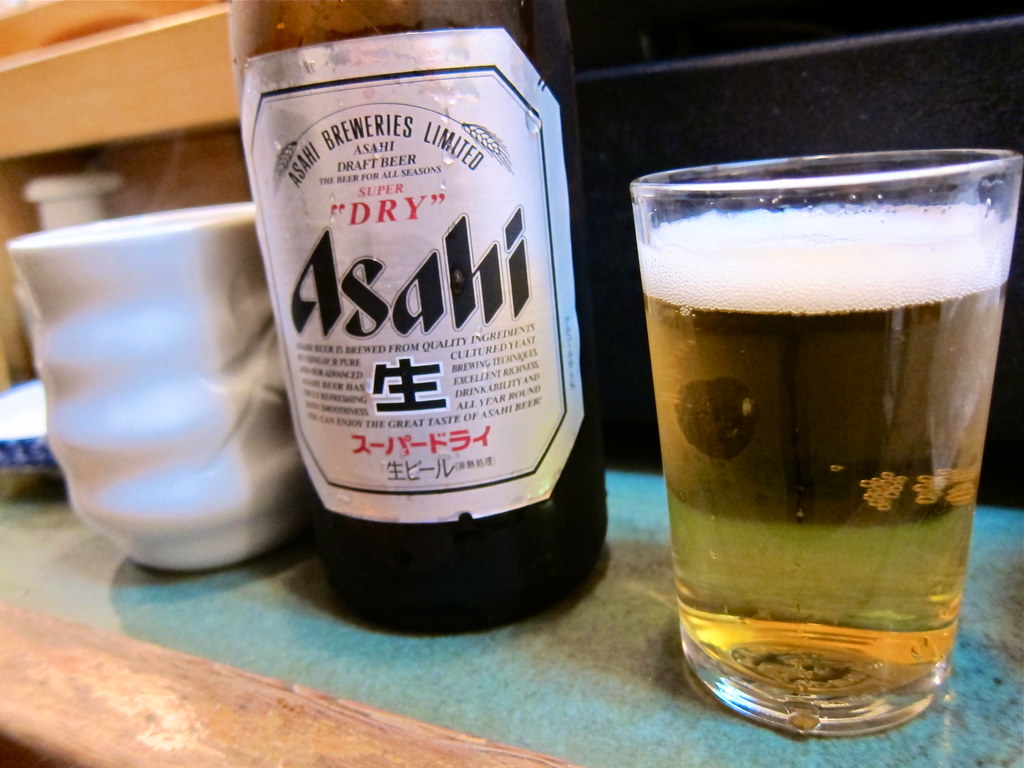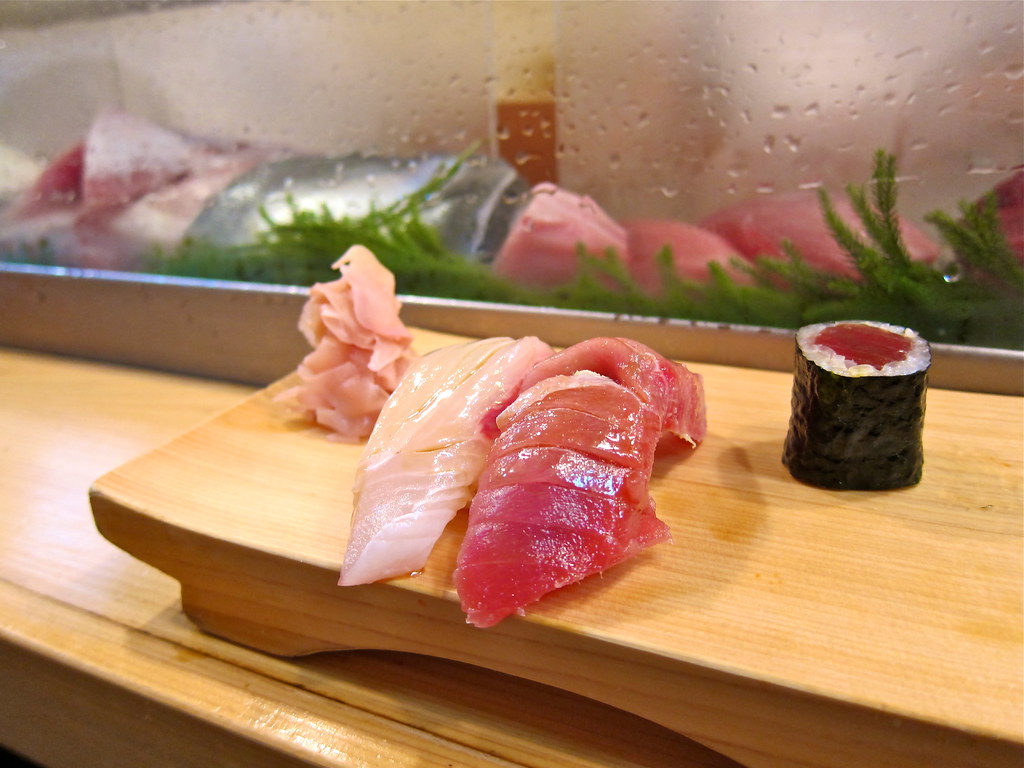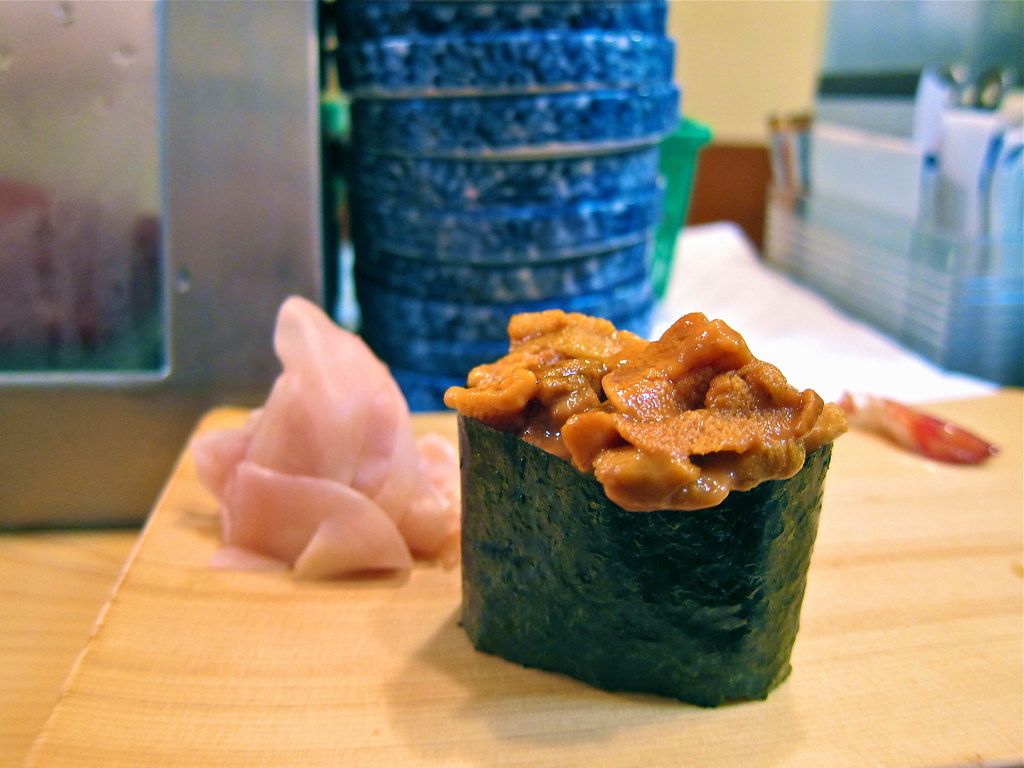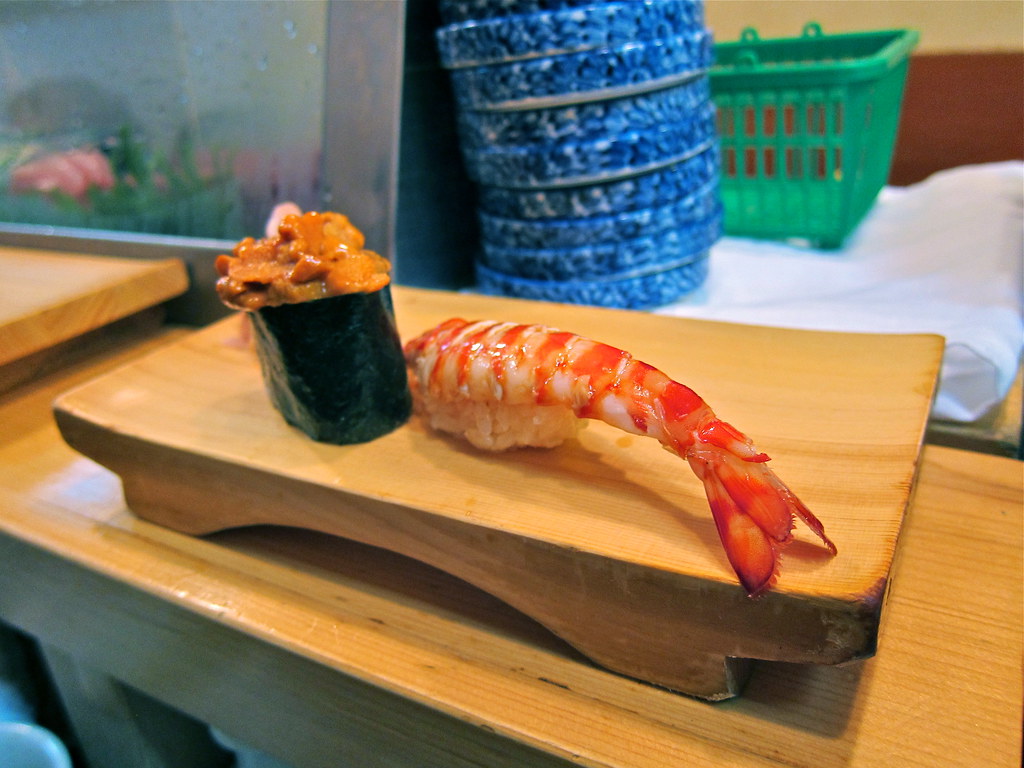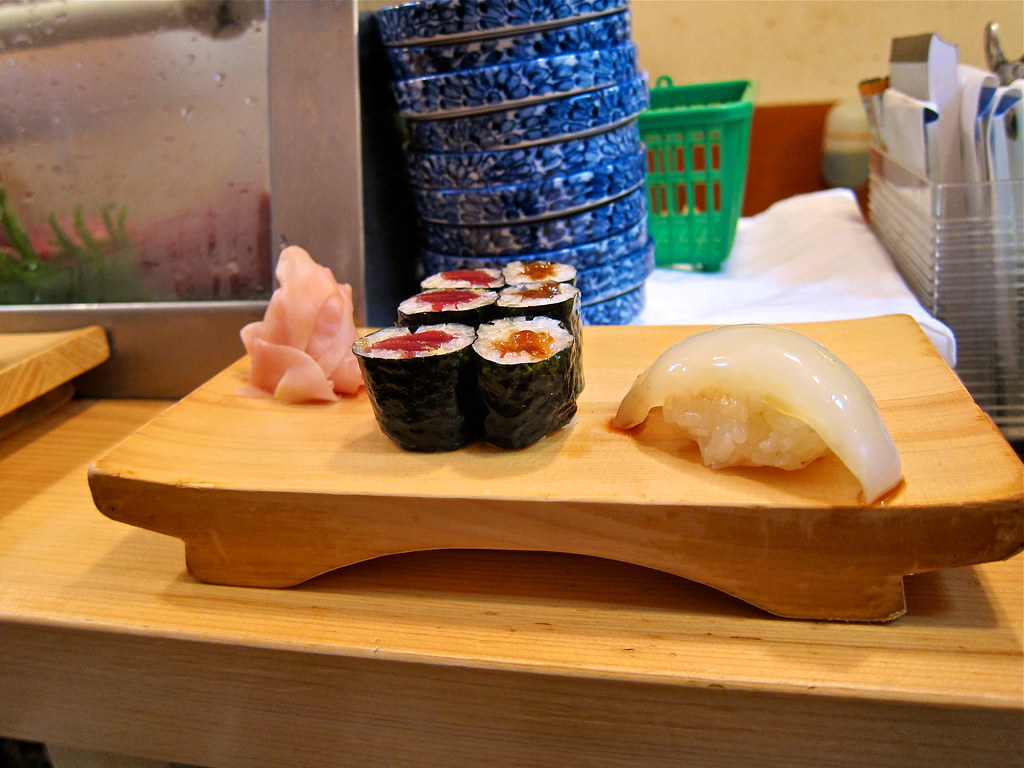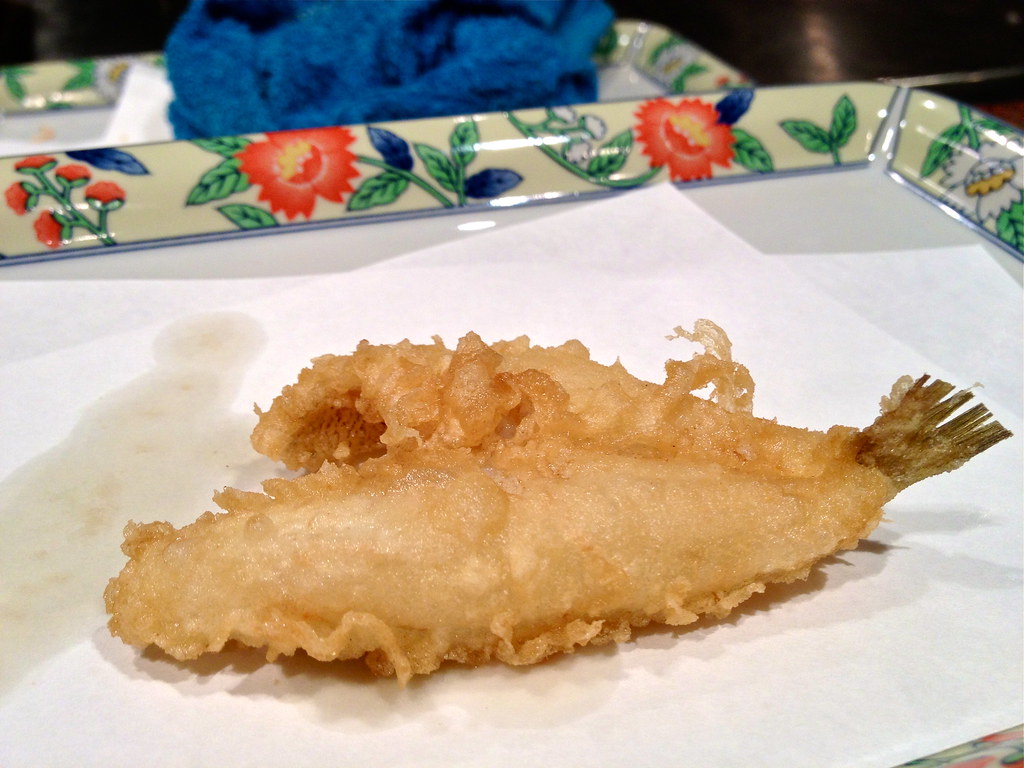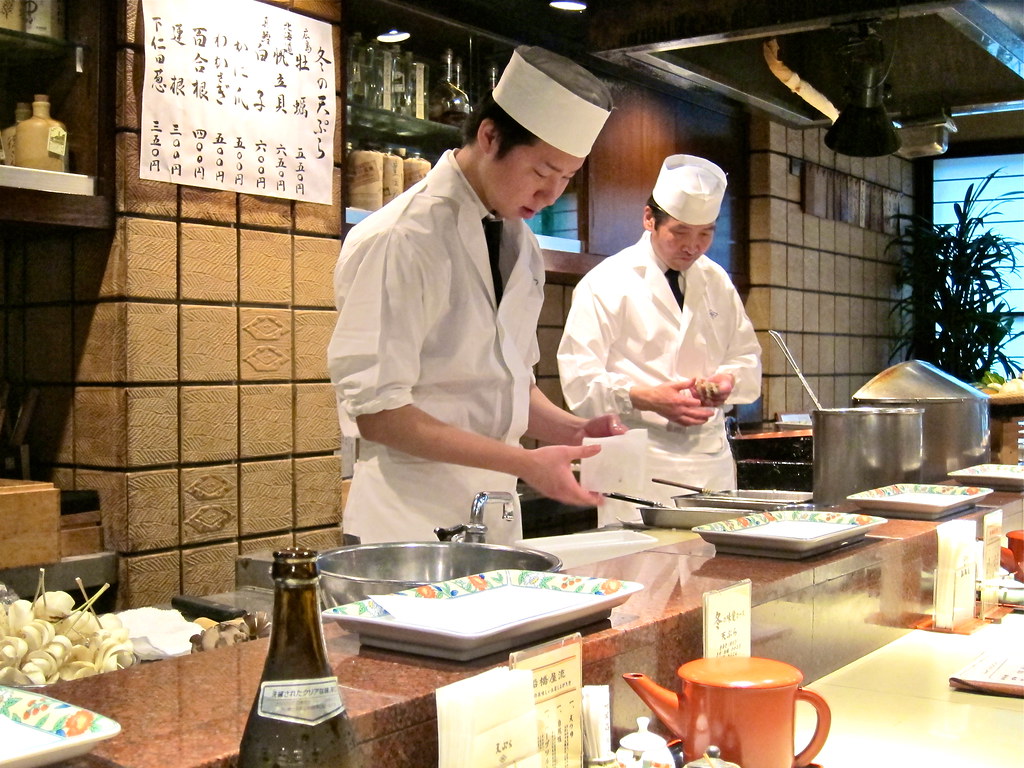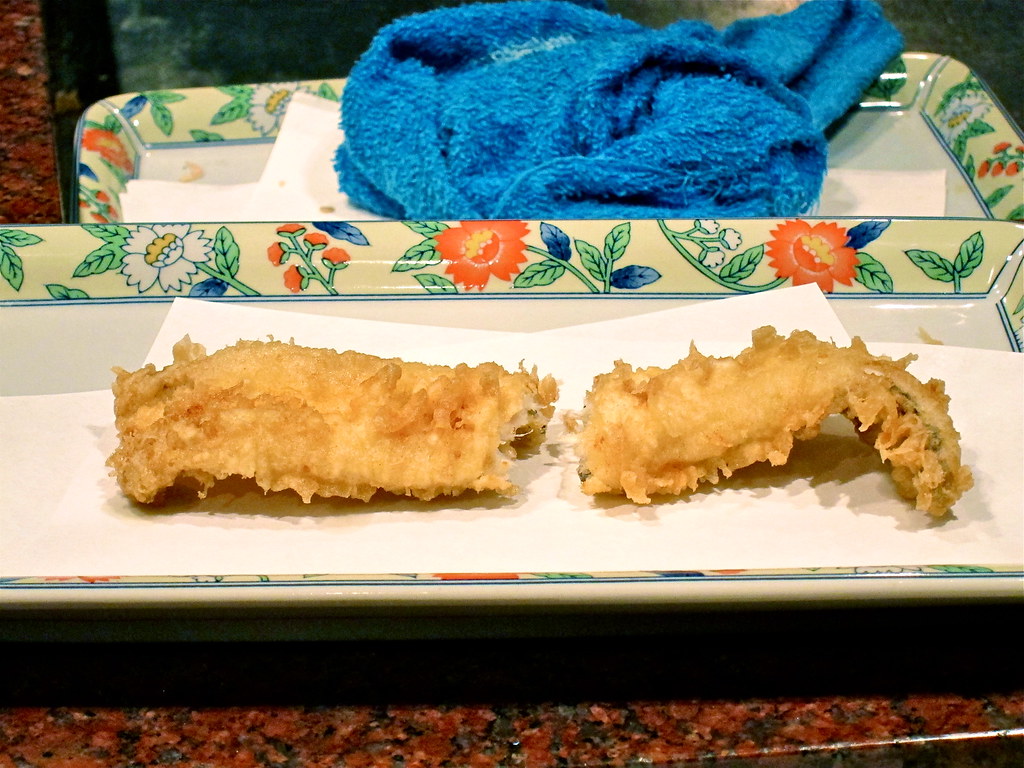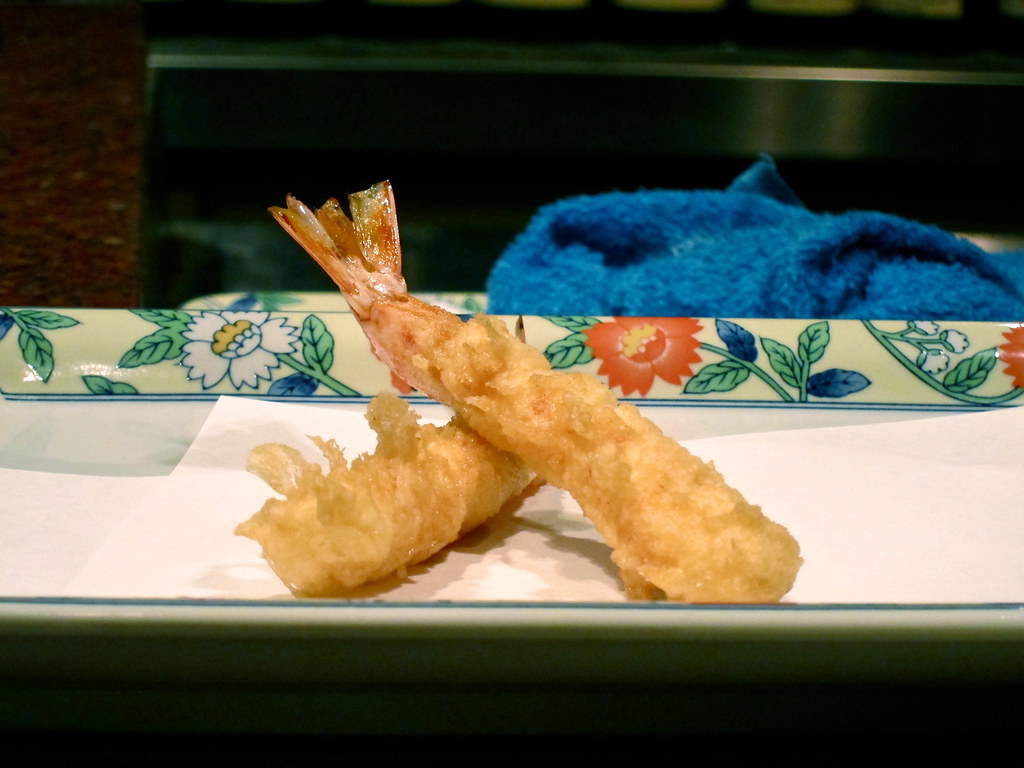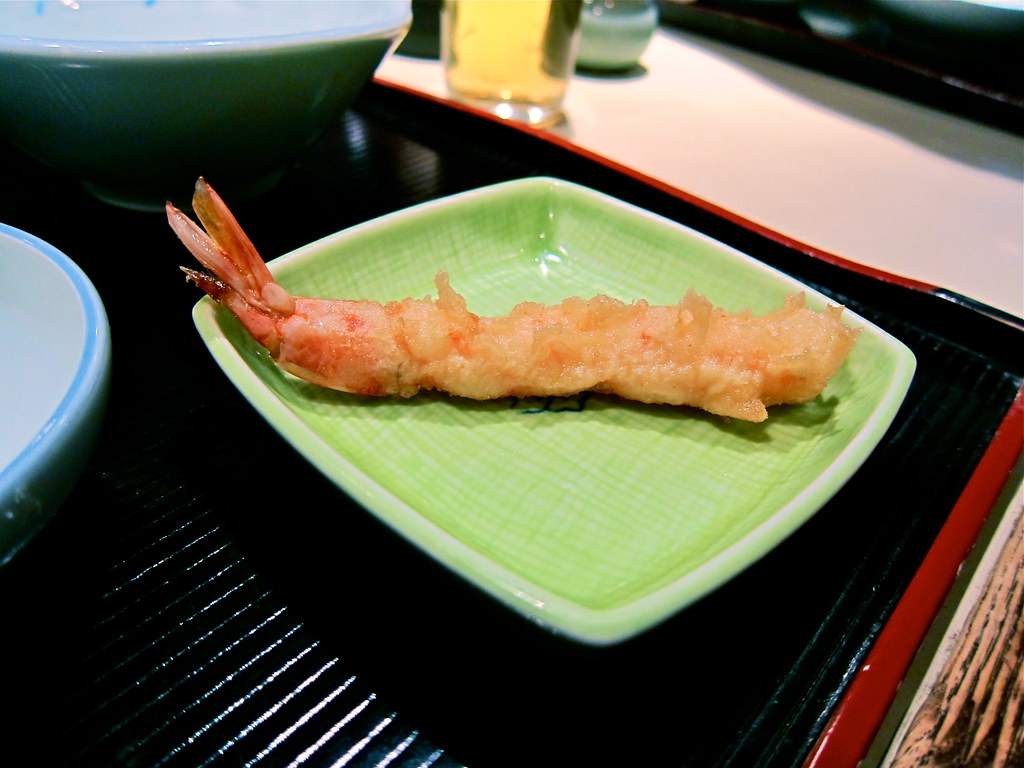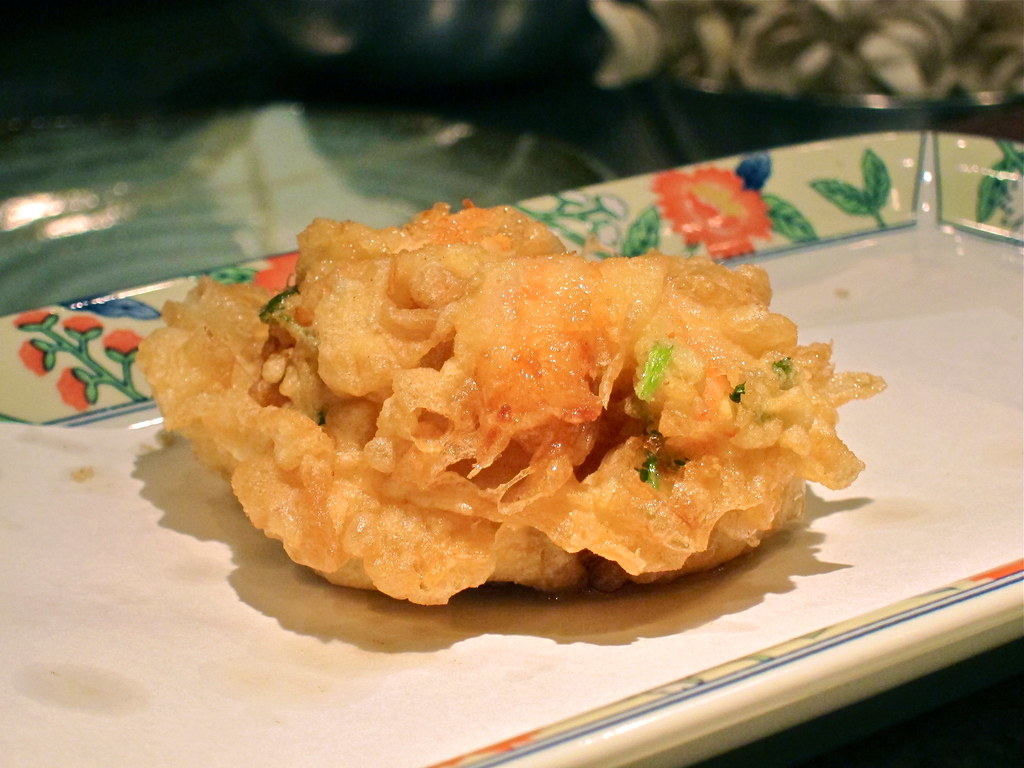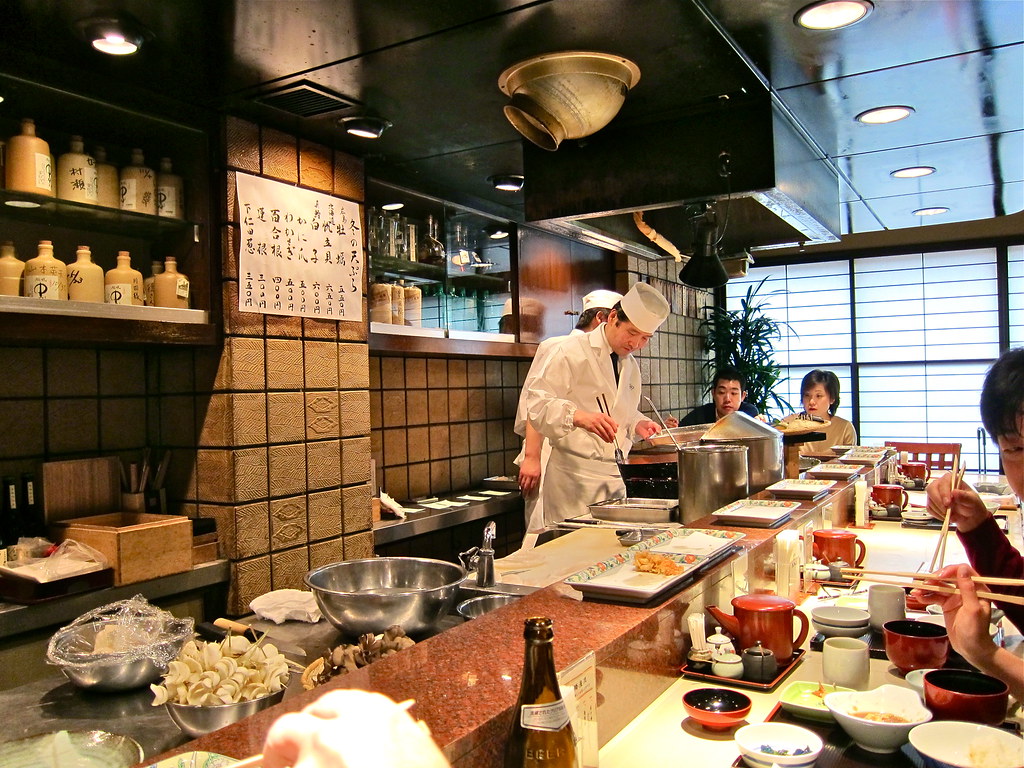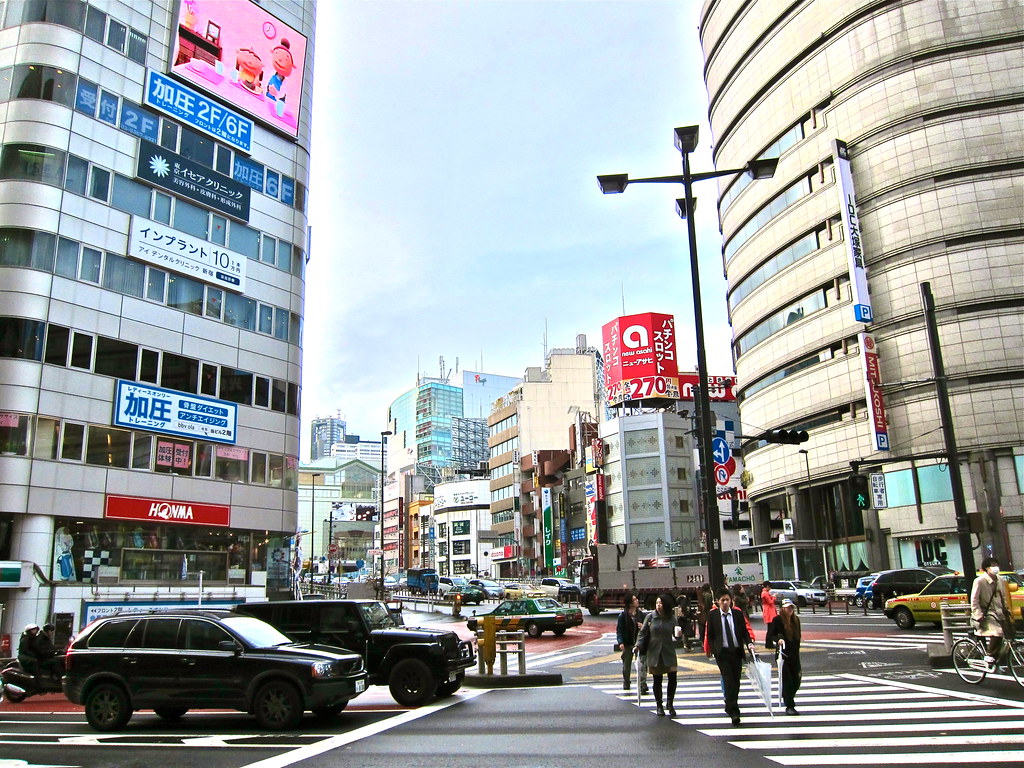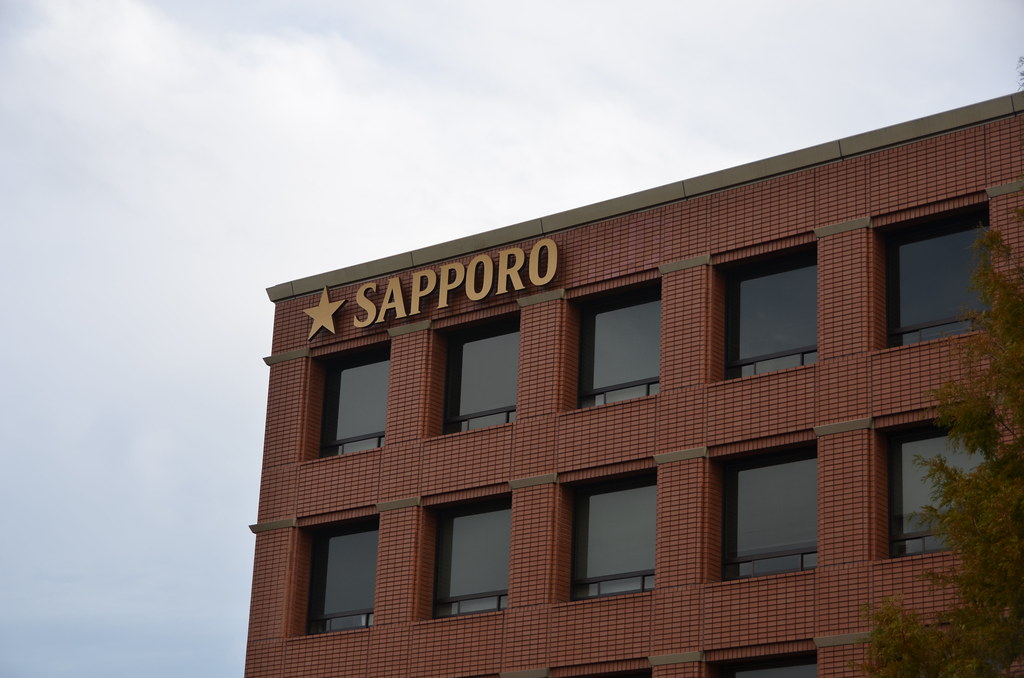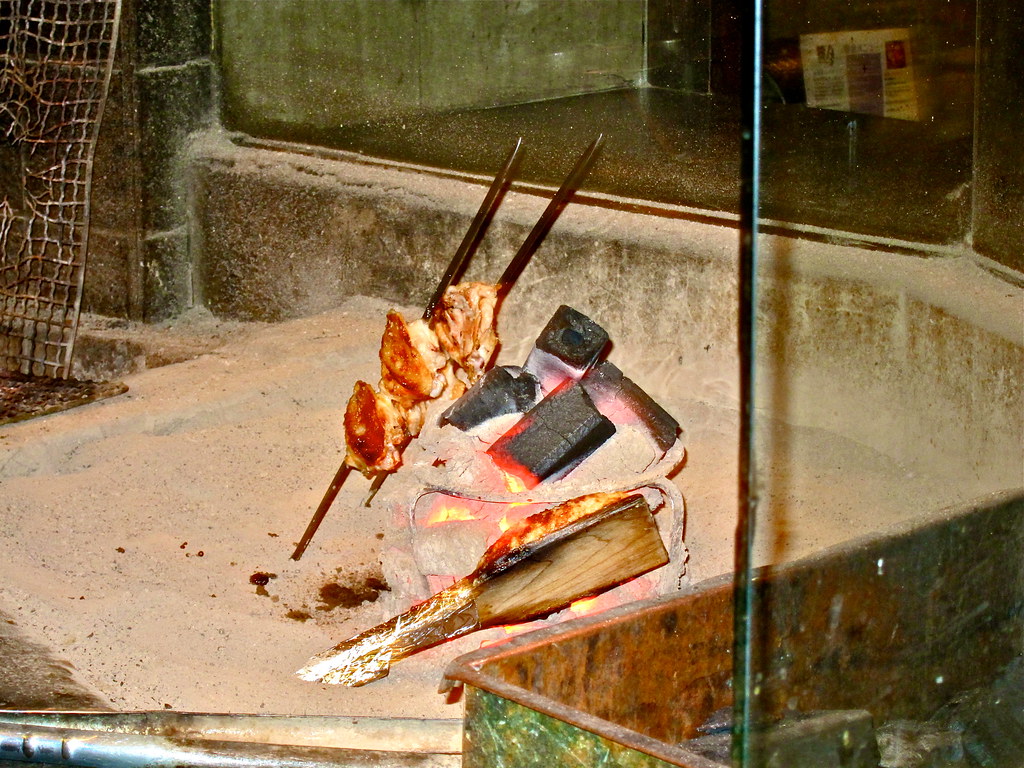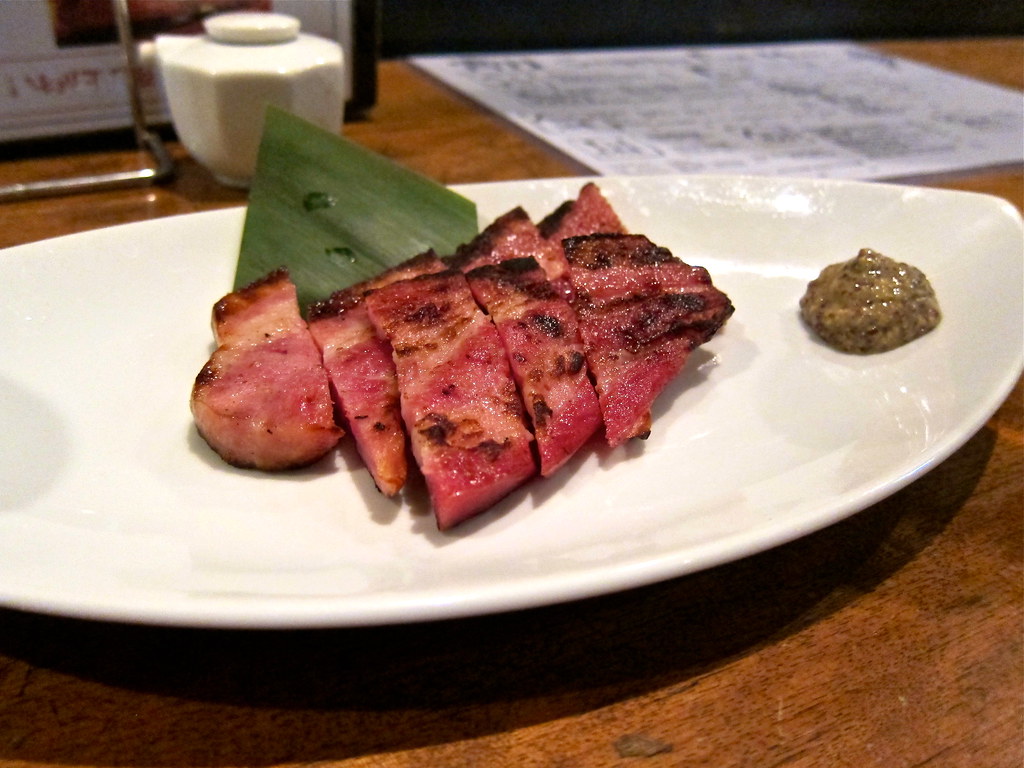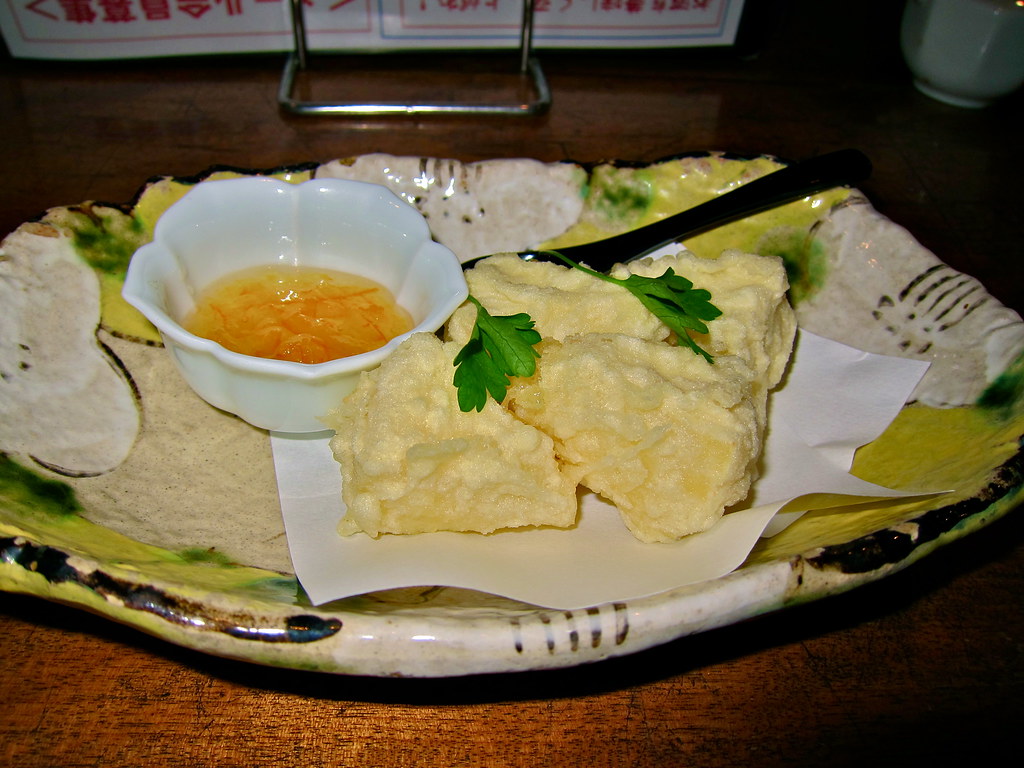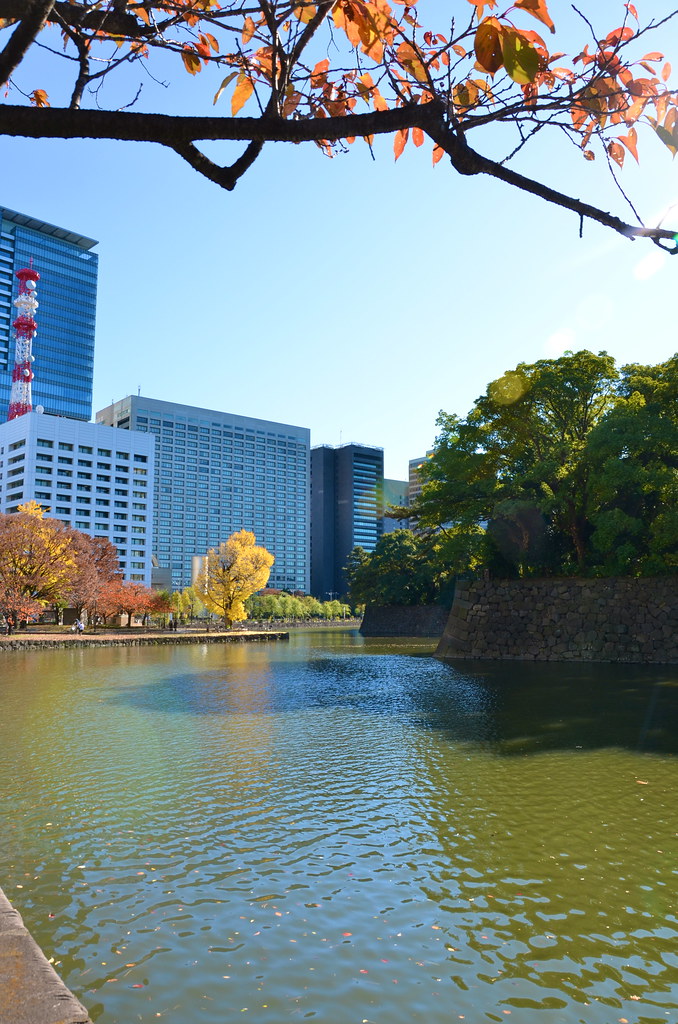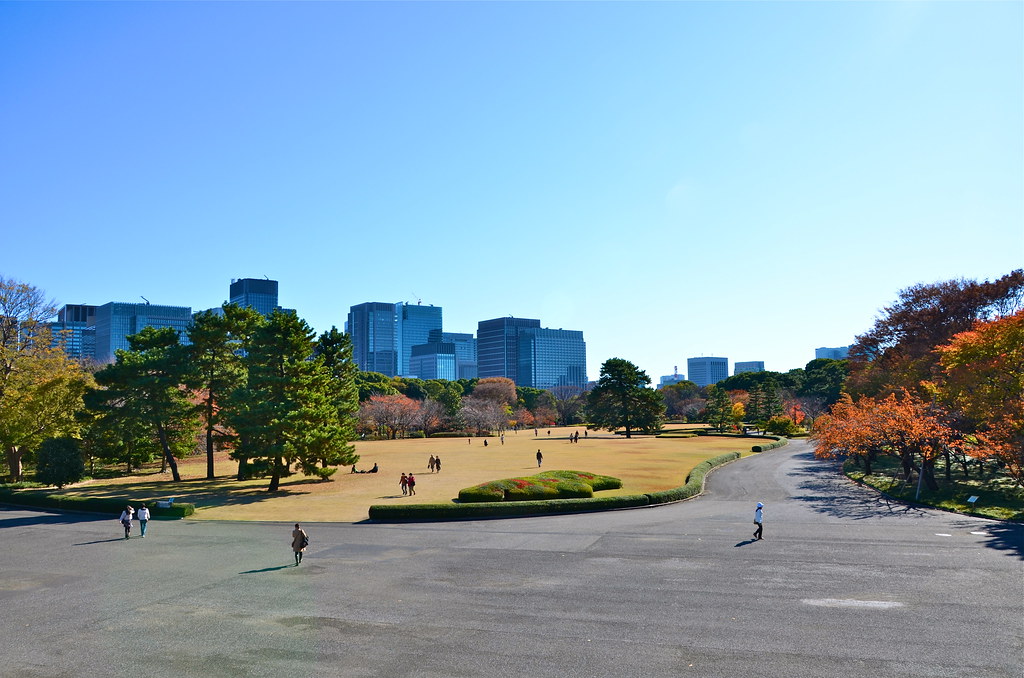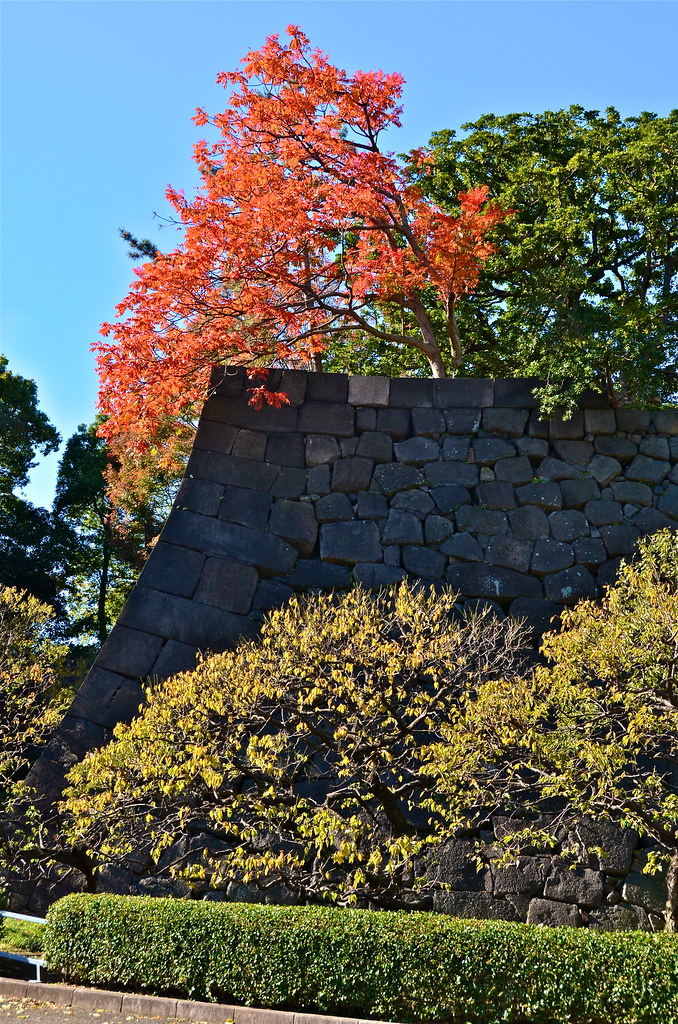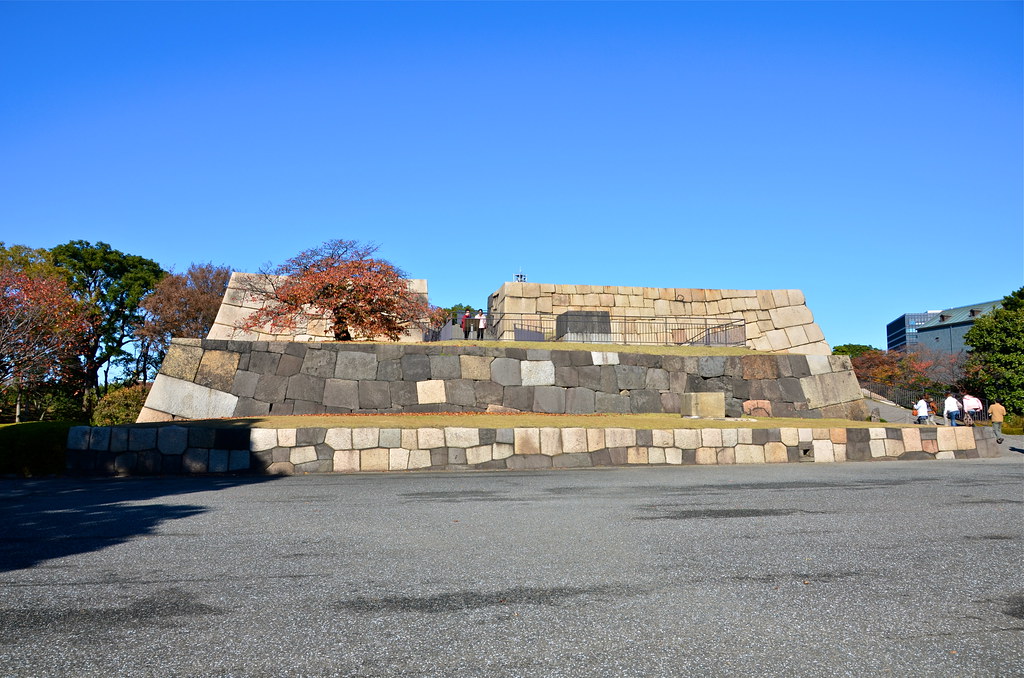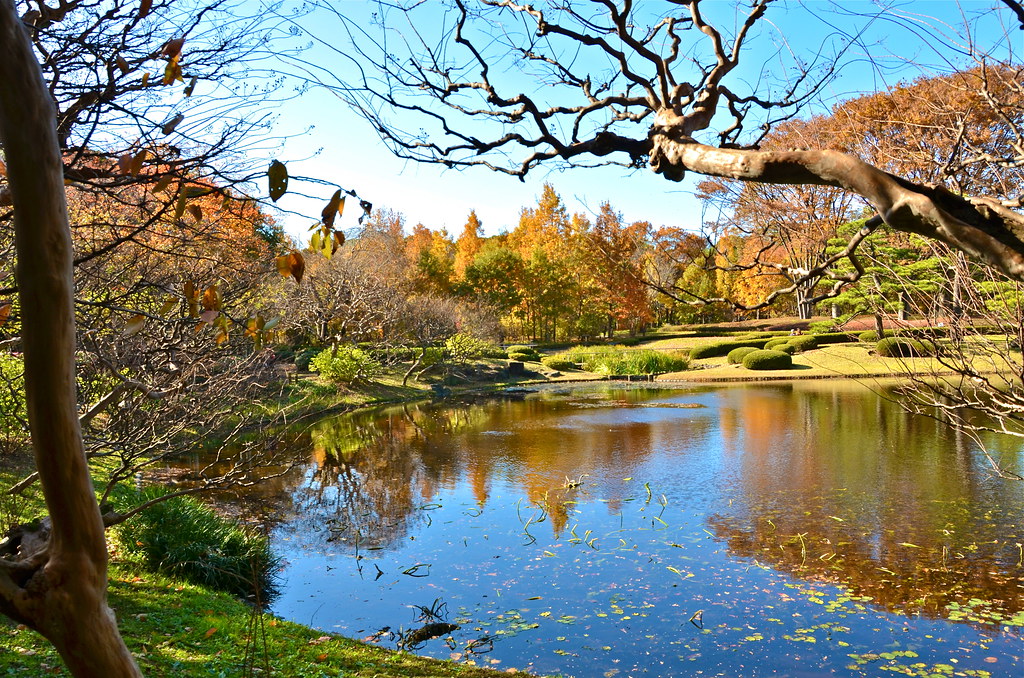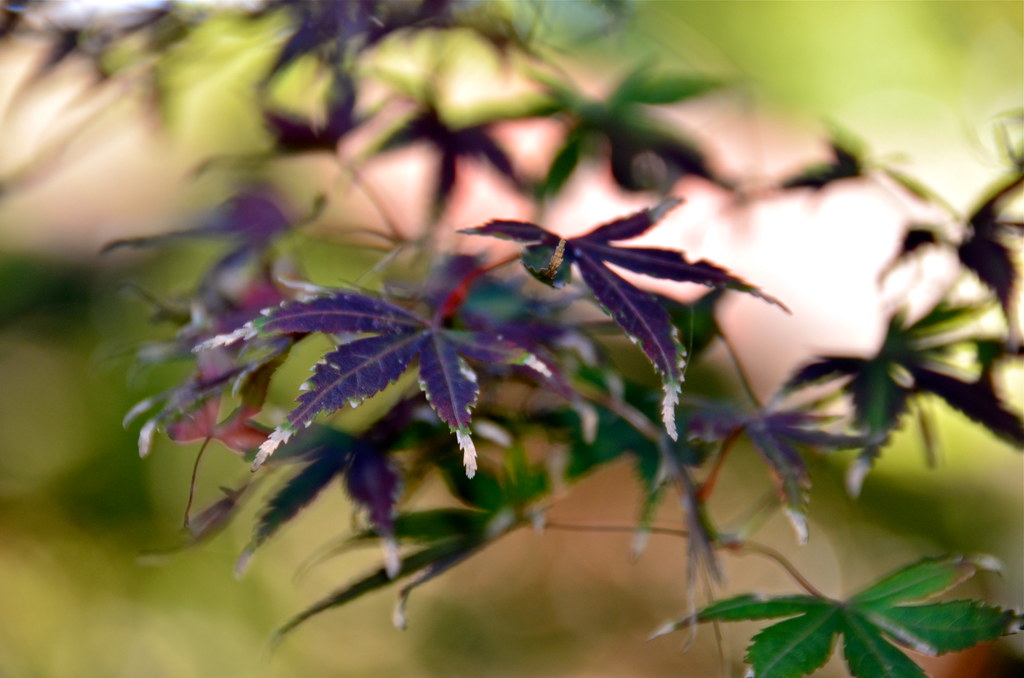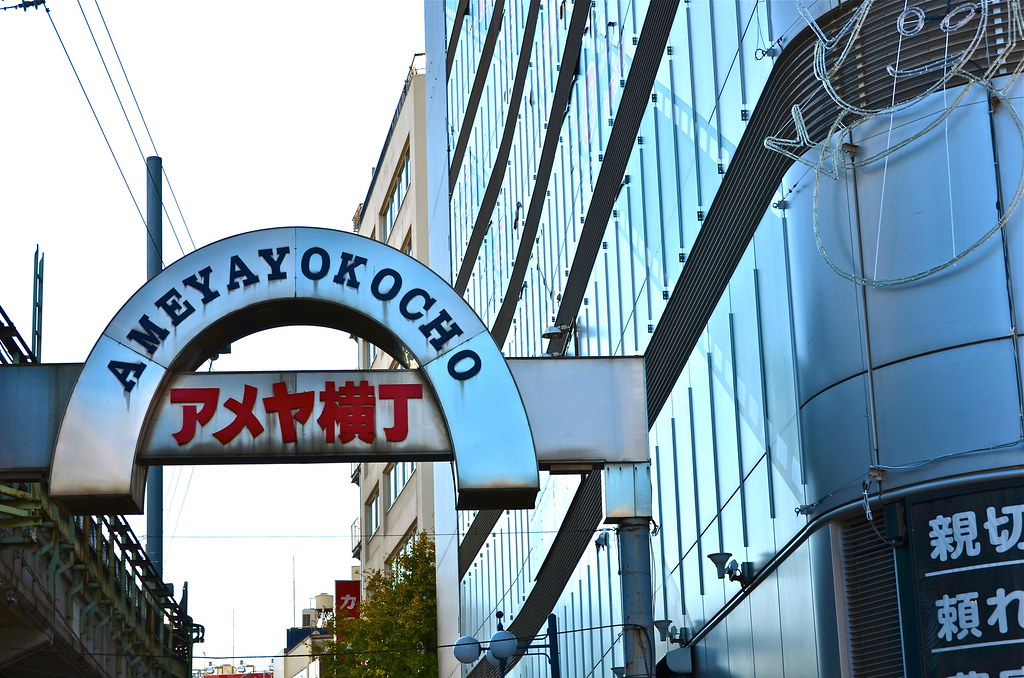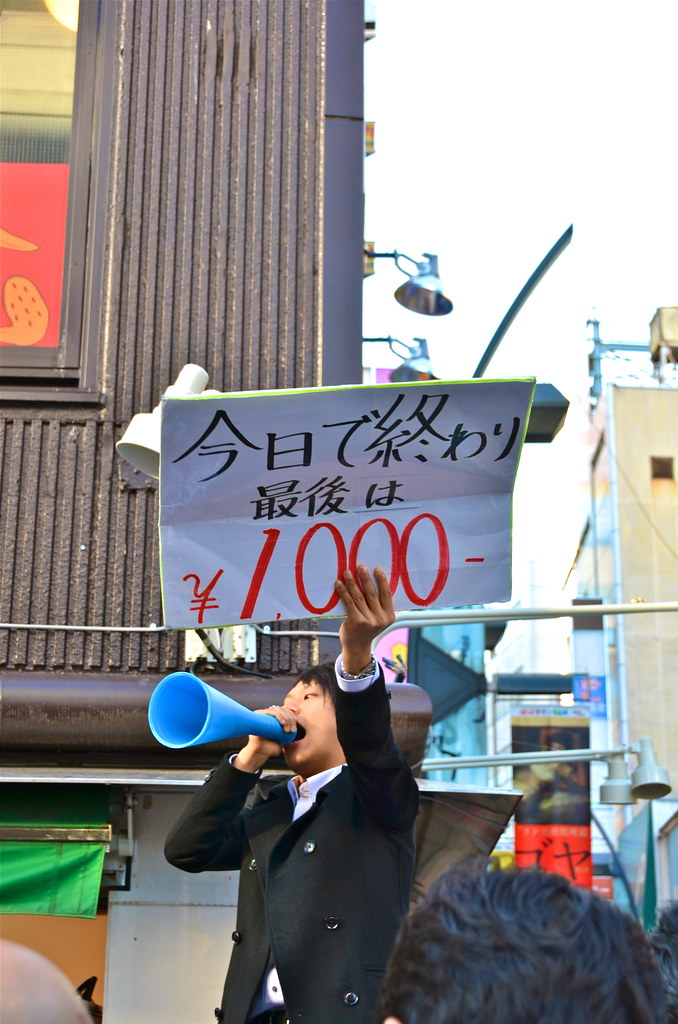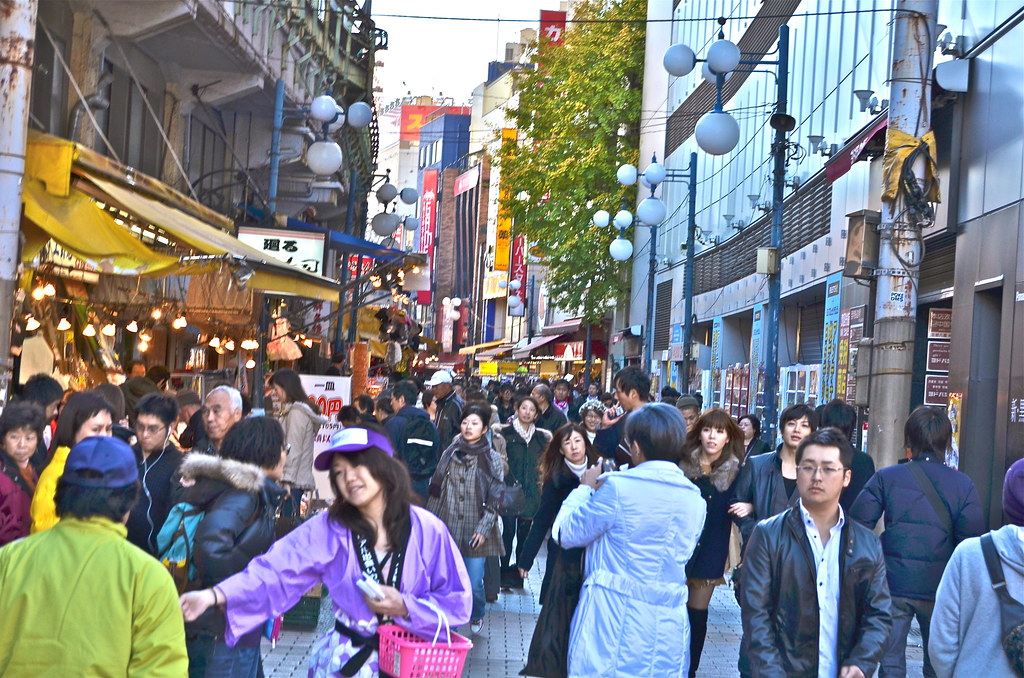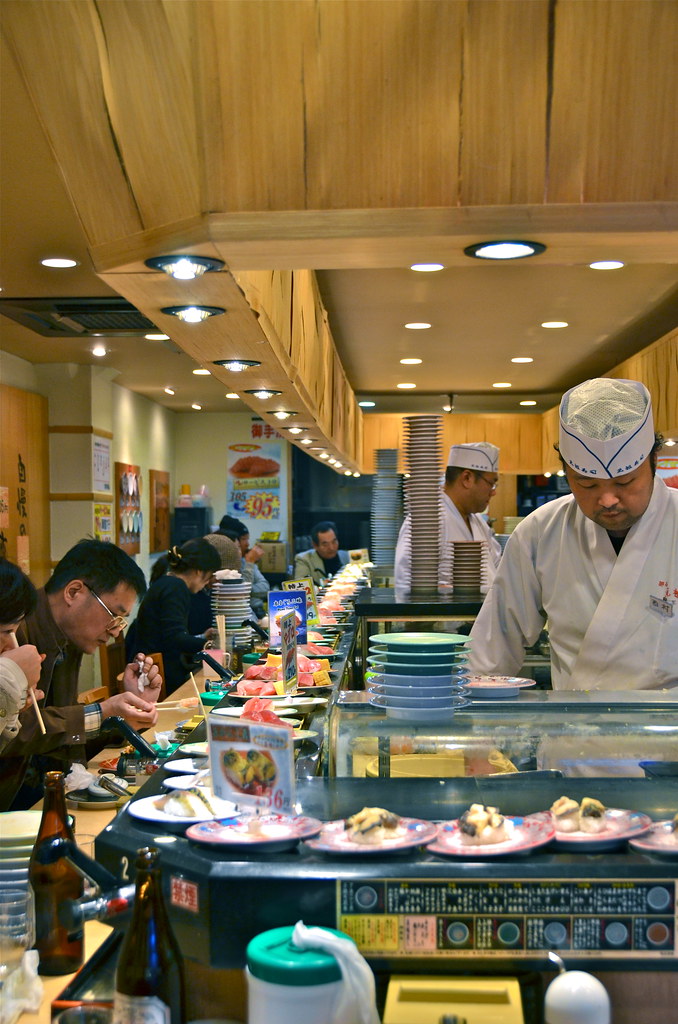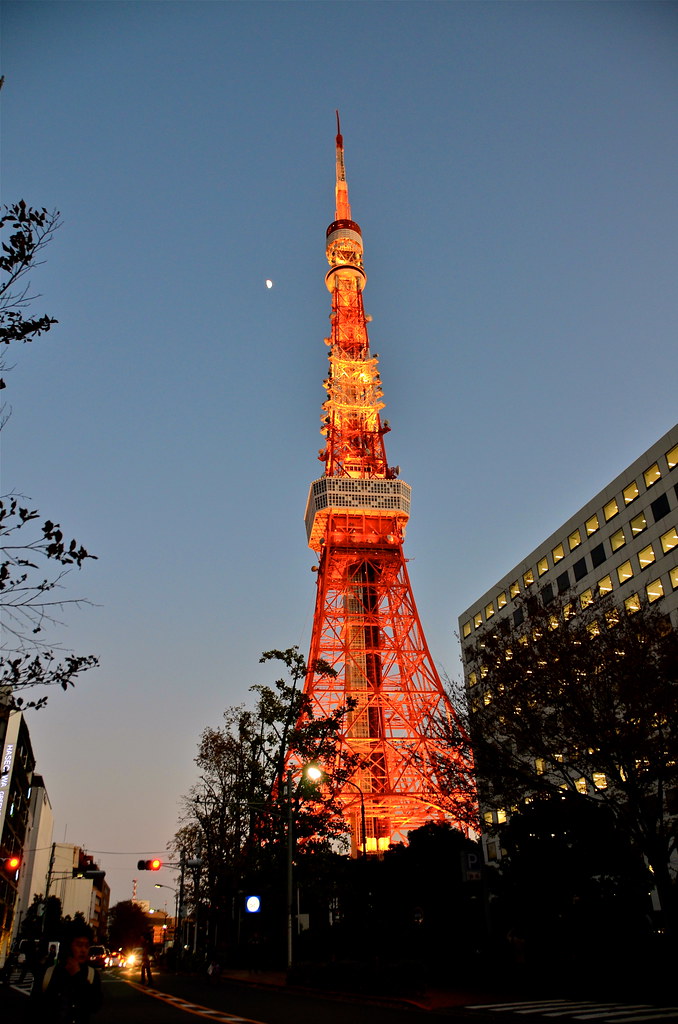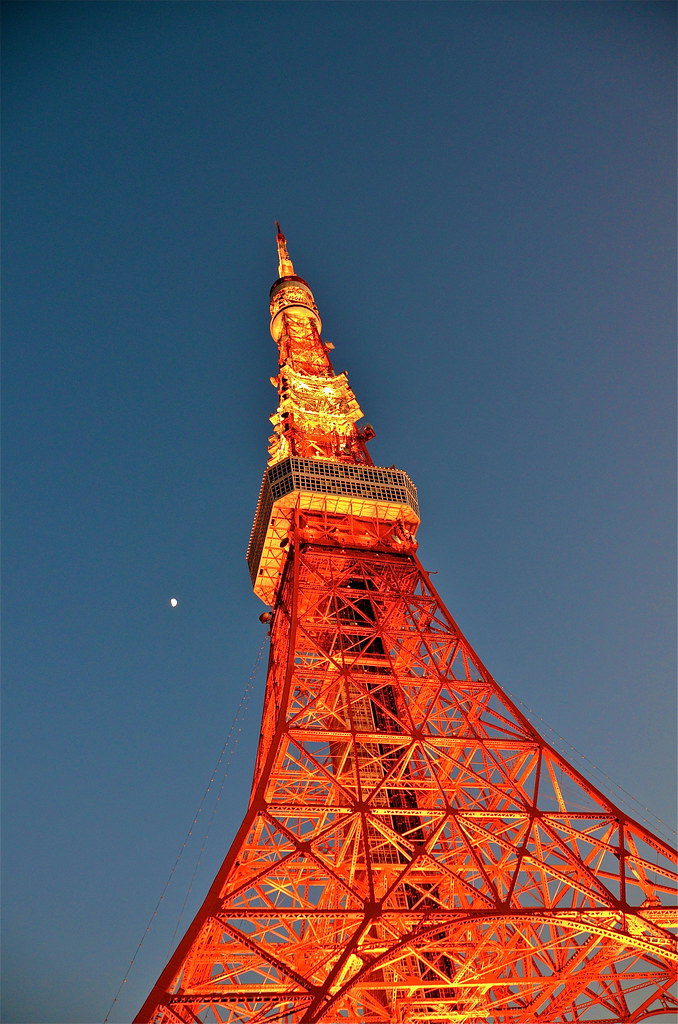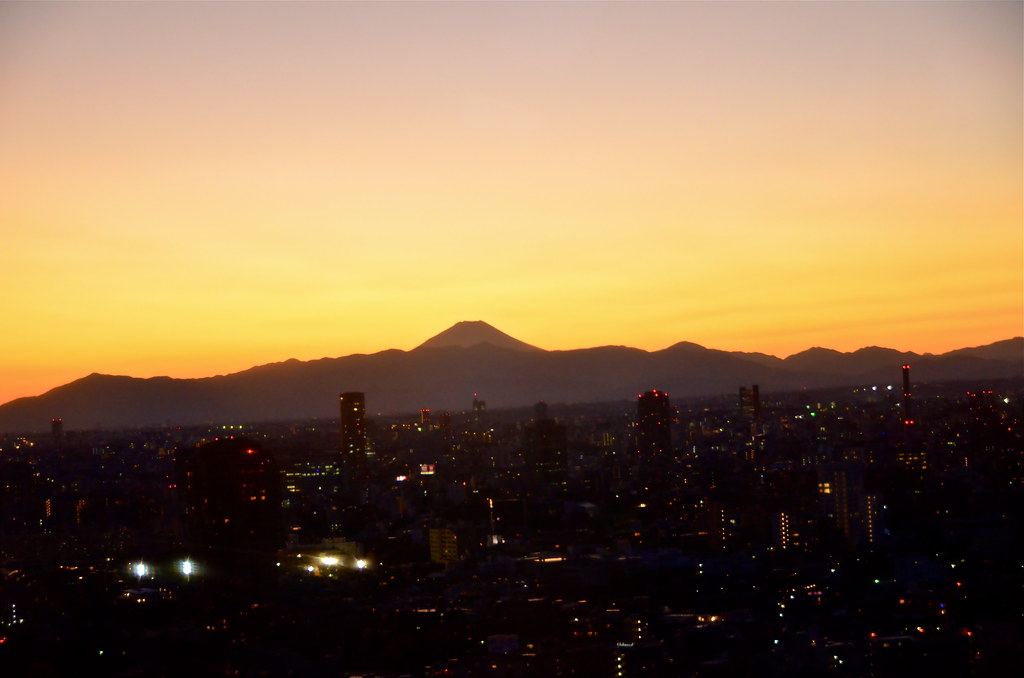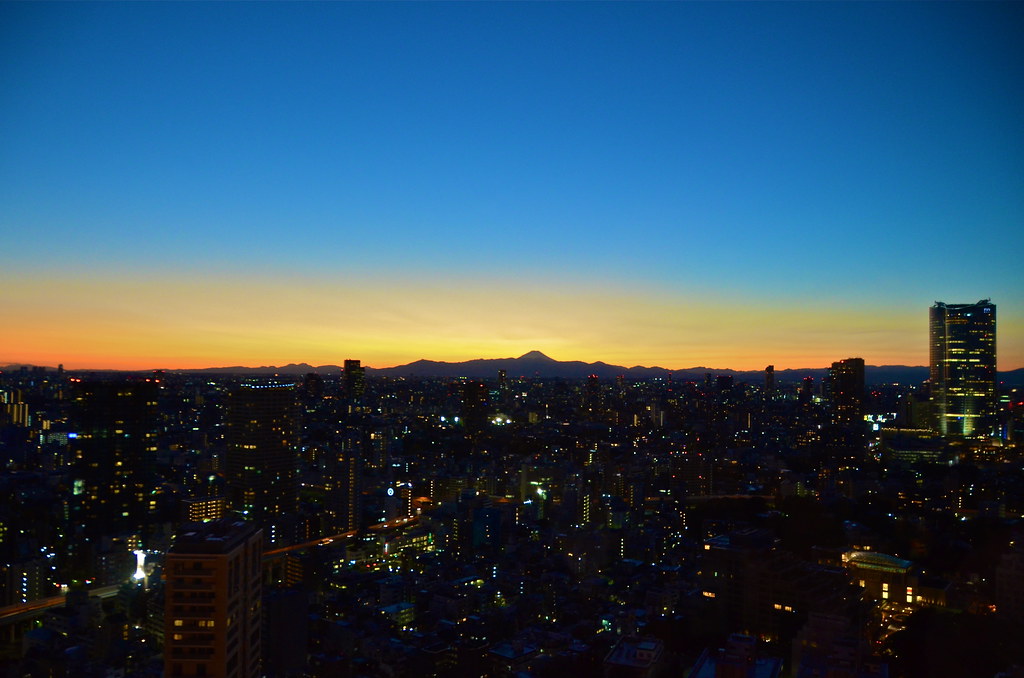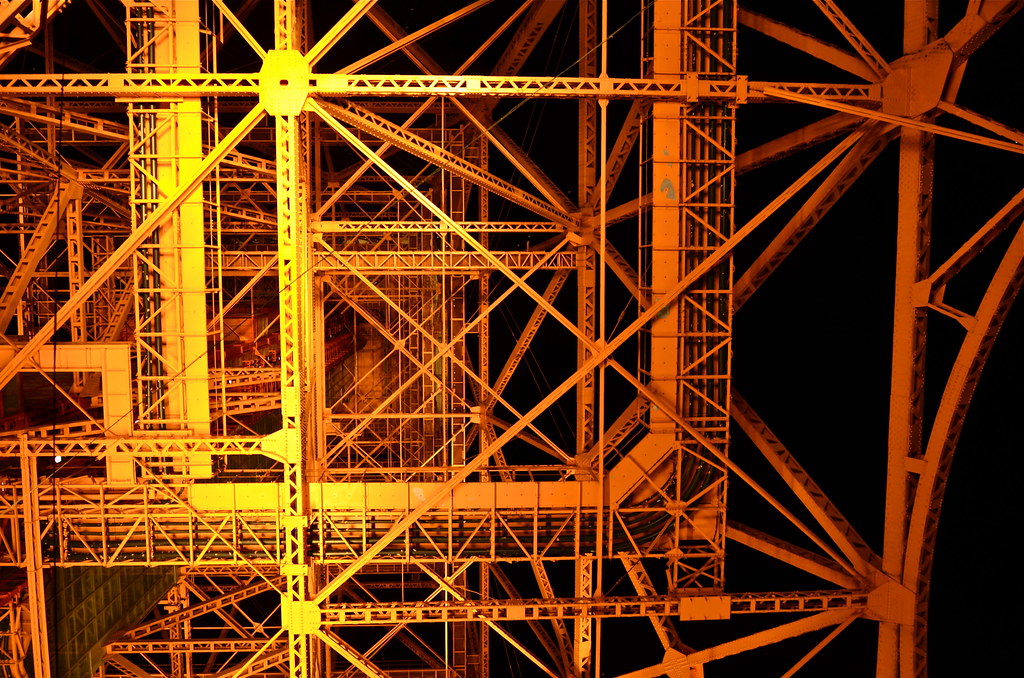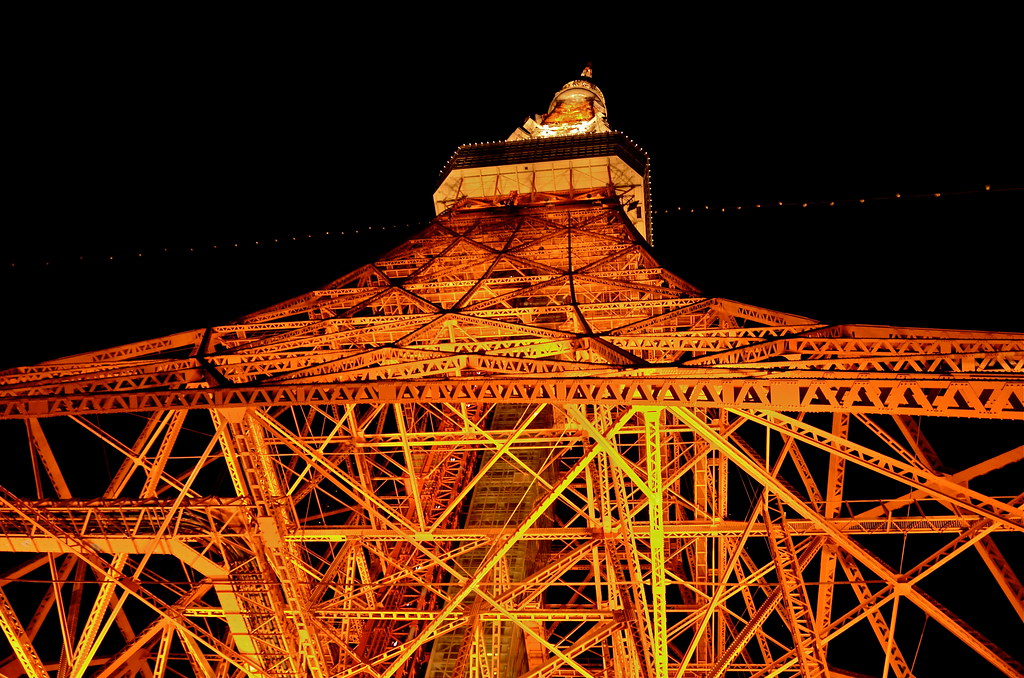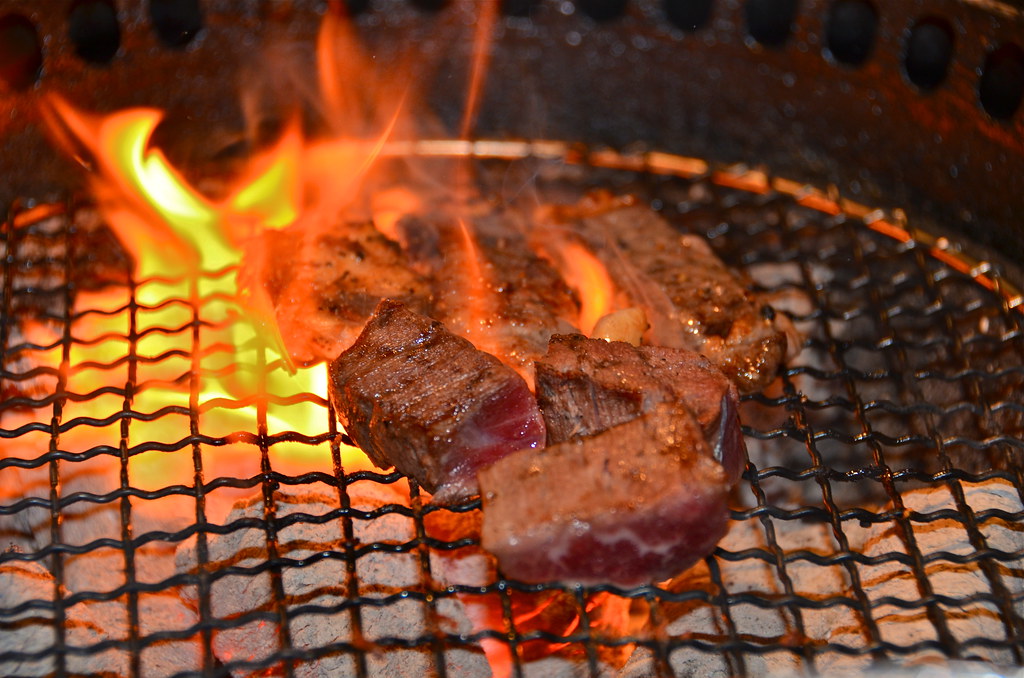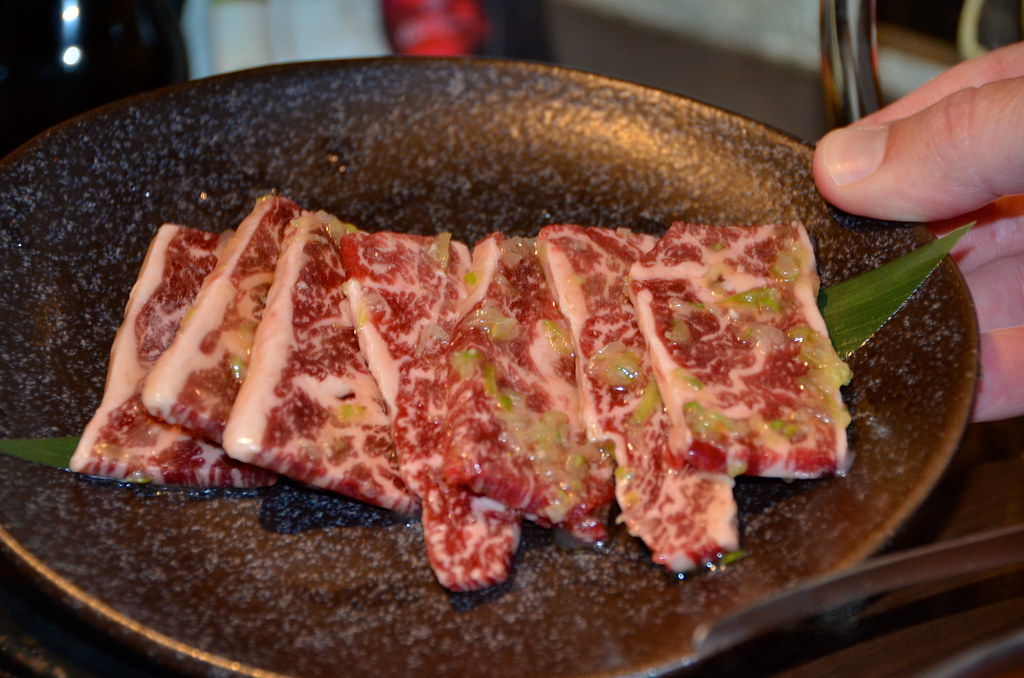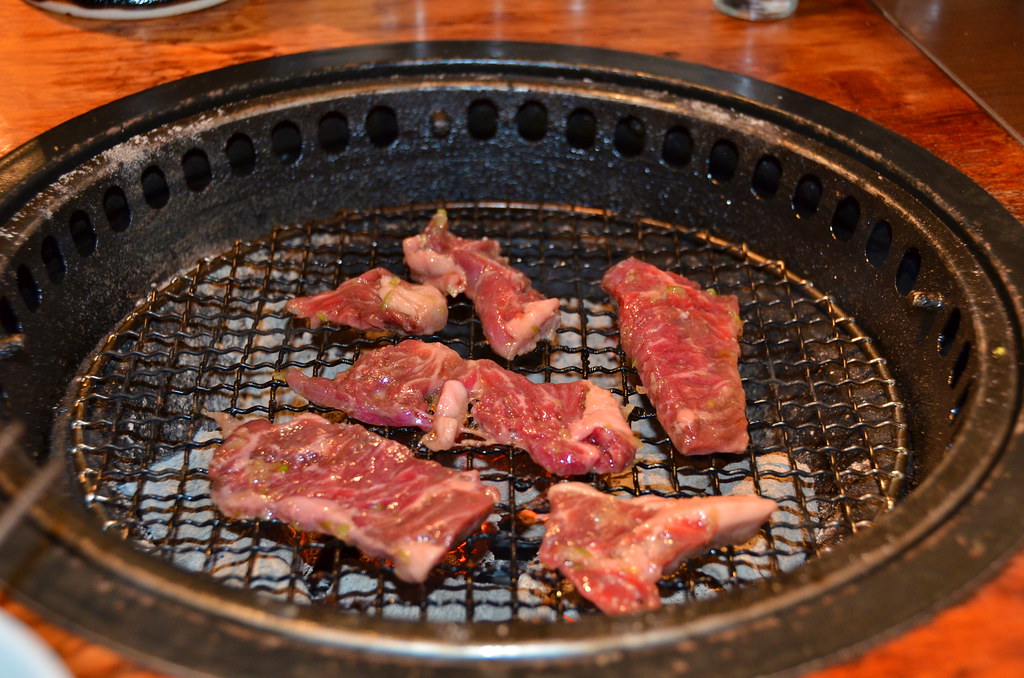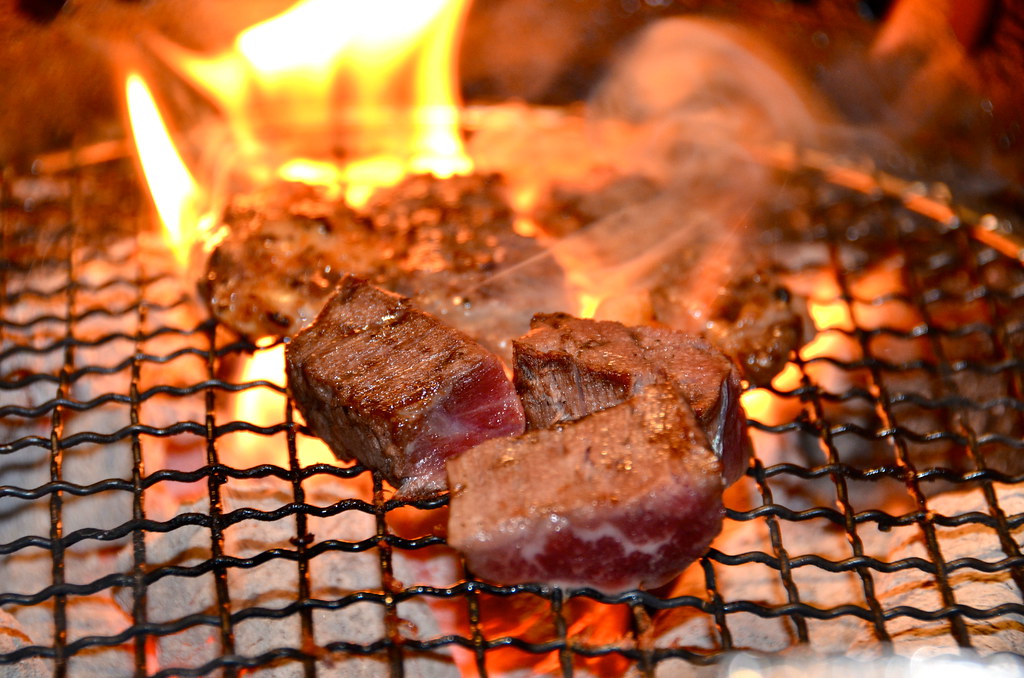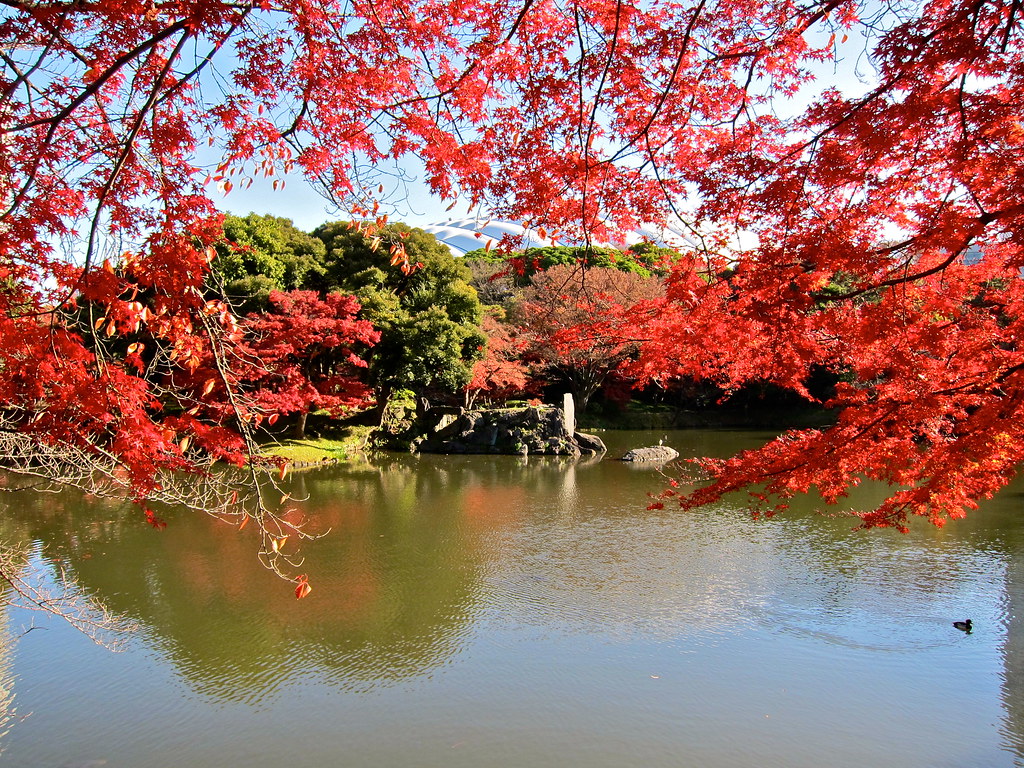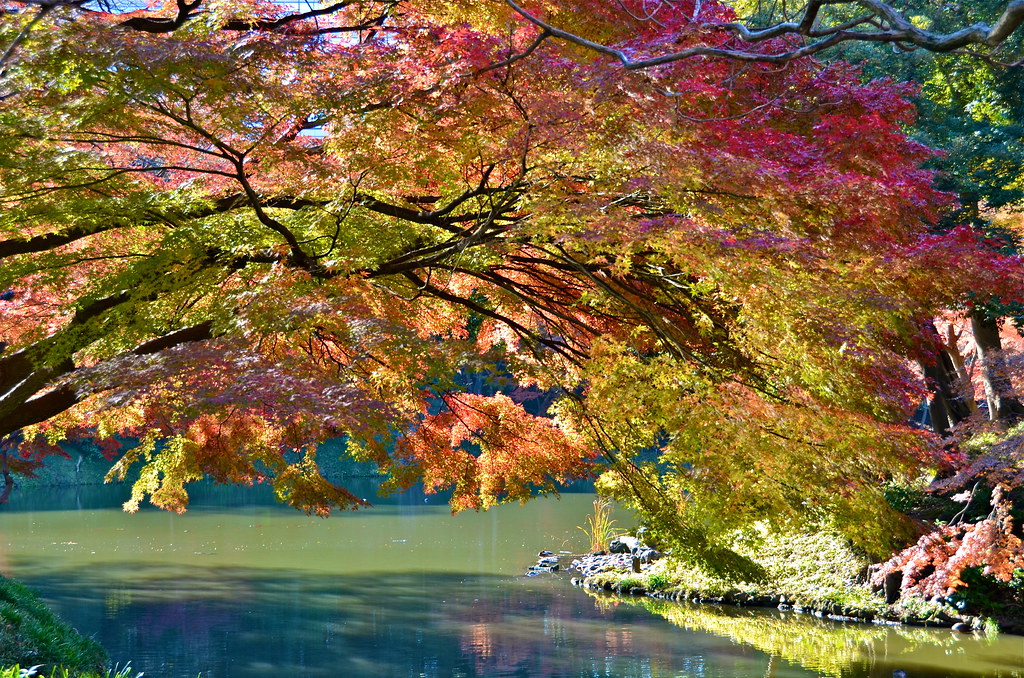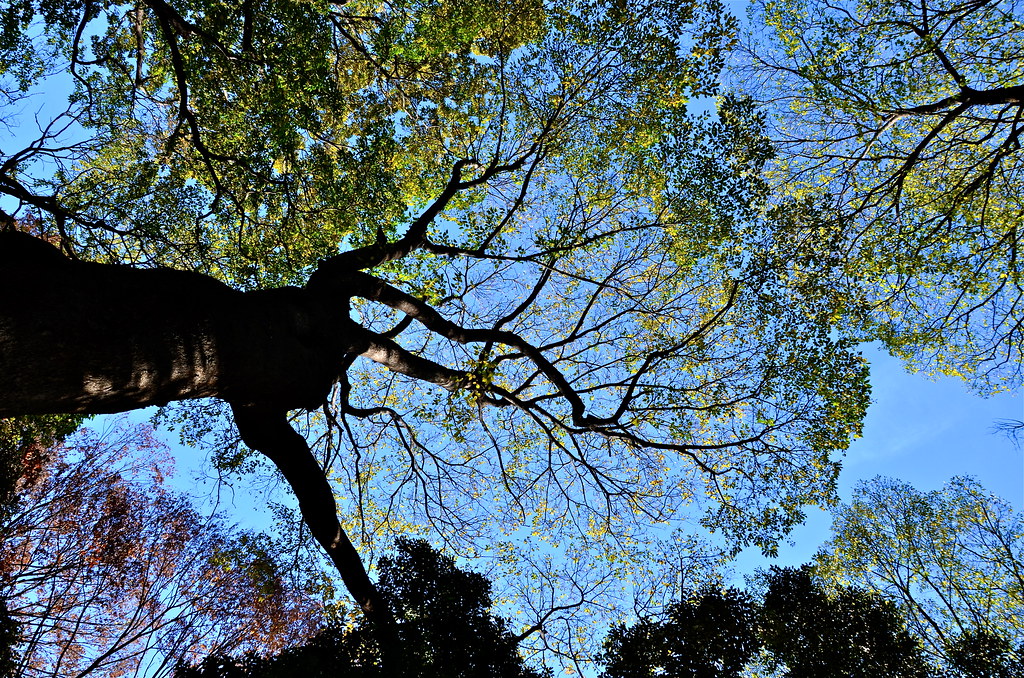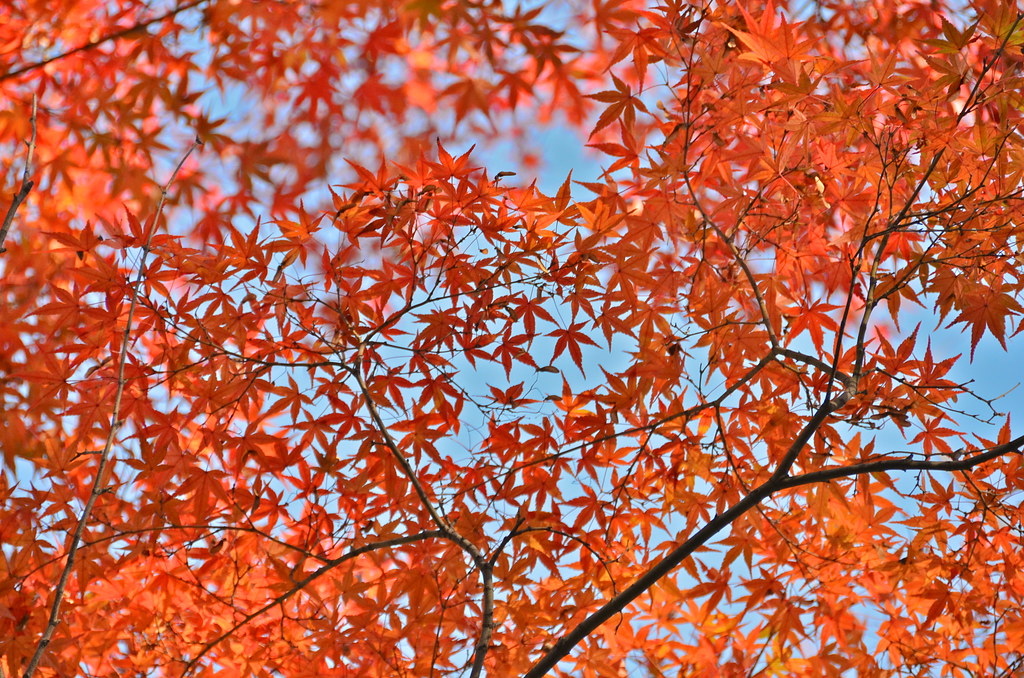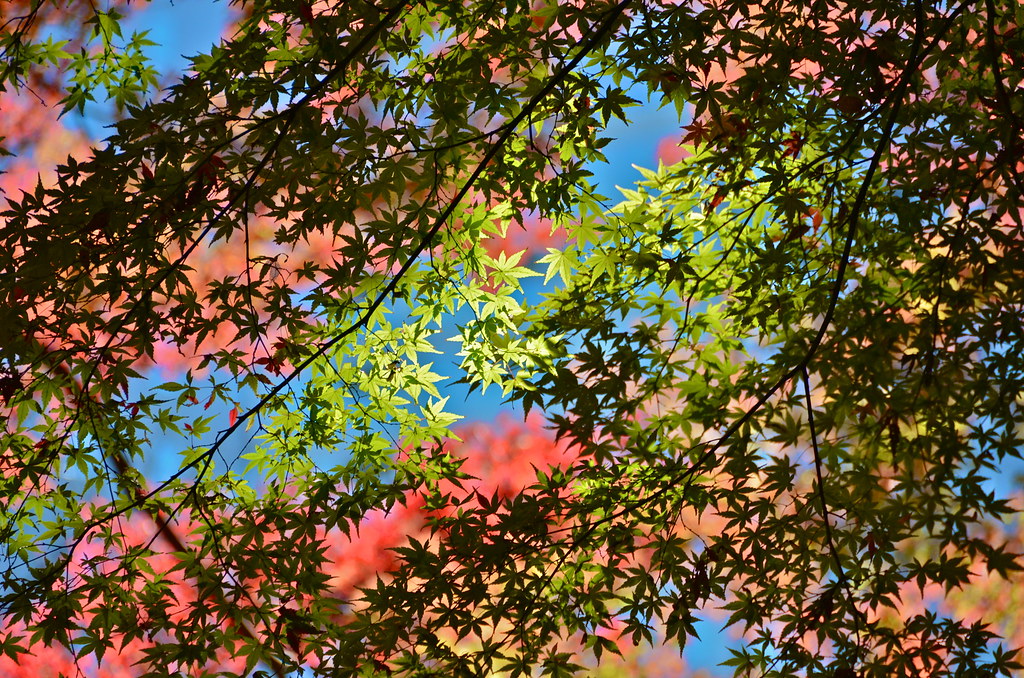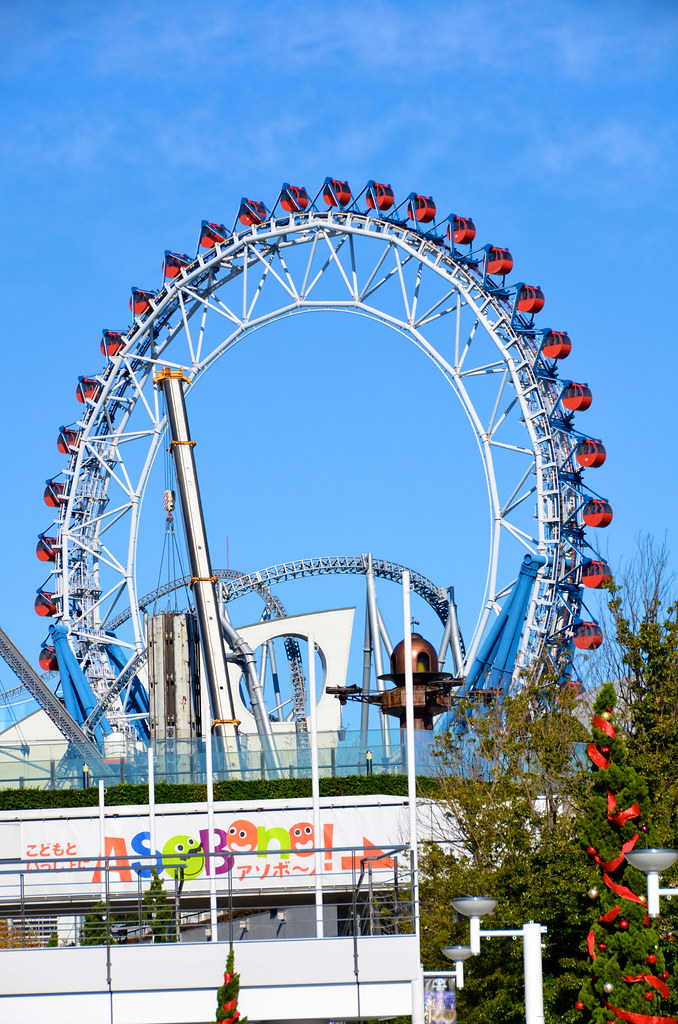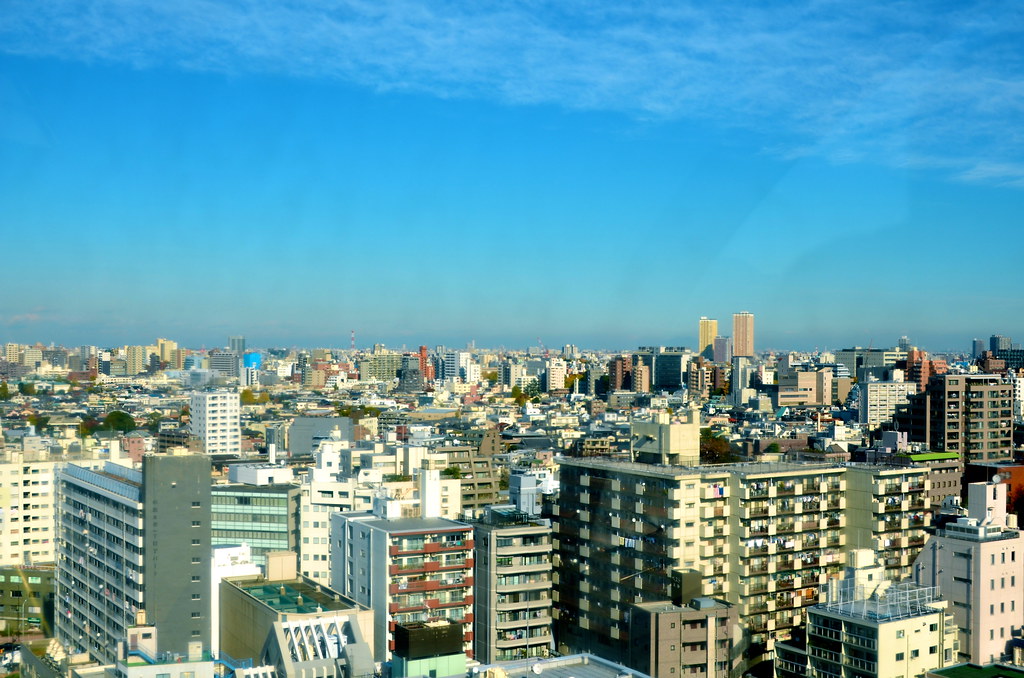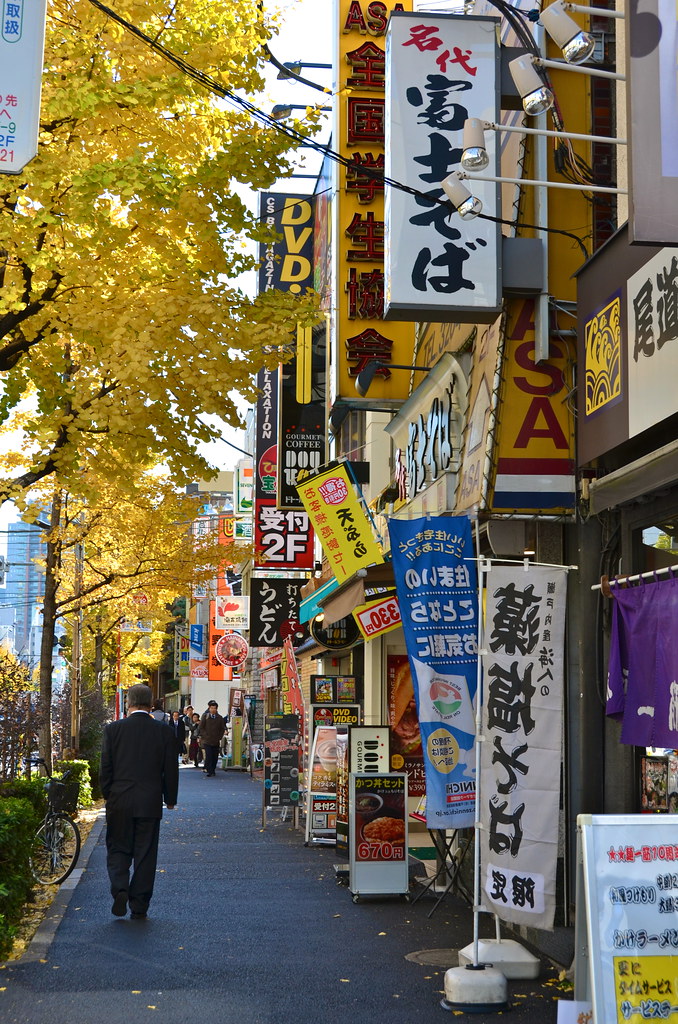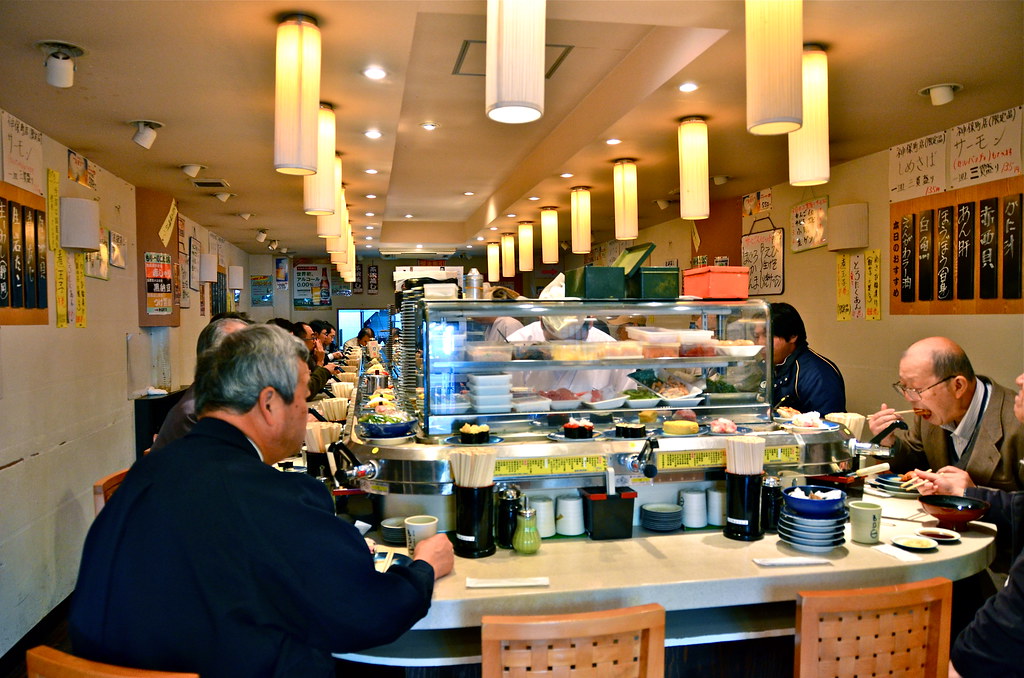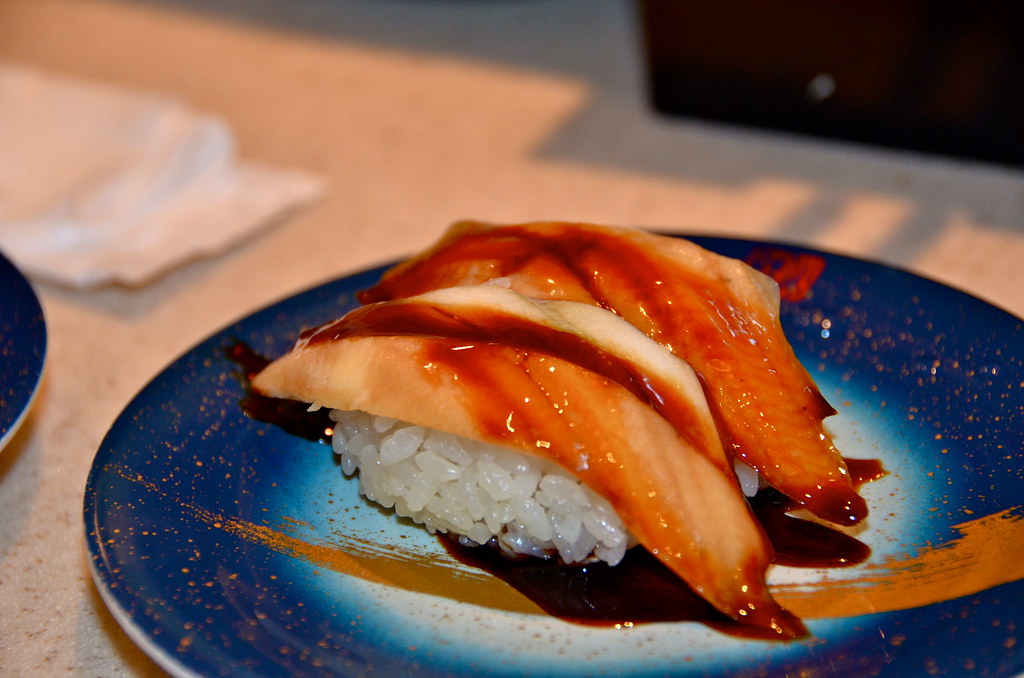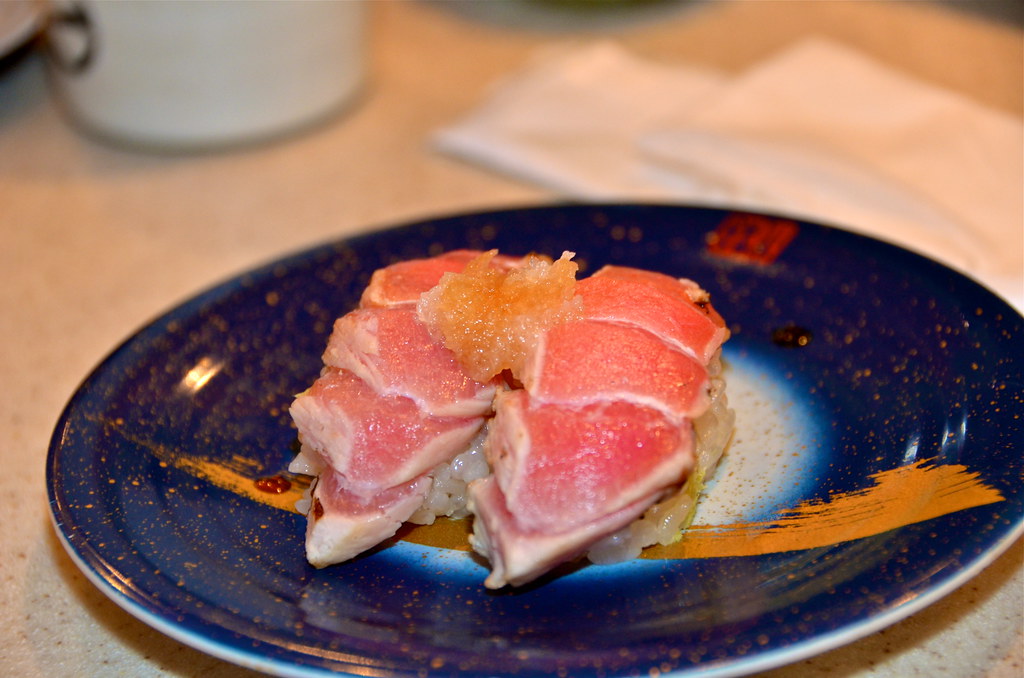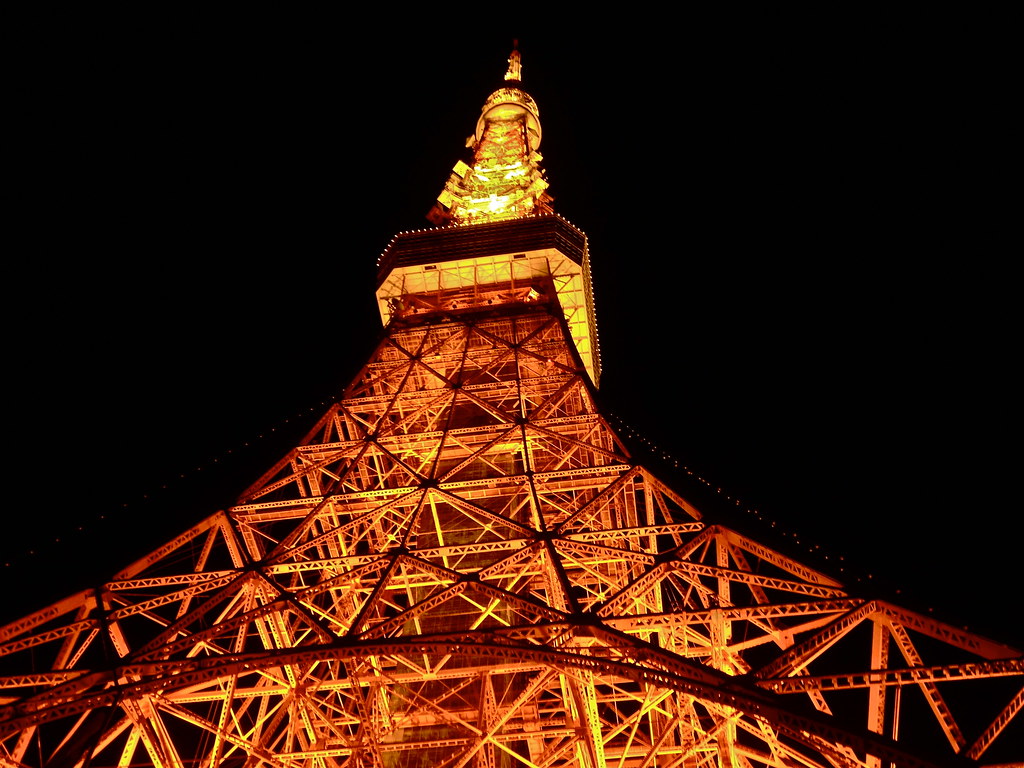Tokyo, Japan
John and I started our journey towards Tokyo at the end of November 2011.
We took the Island Hopper and landed in Tokyo on December 1st.
The Island Hopper is a flight from Honolulu to Guam that makes stops in Majuro, Kwajalein, Pohnpei, & Chuuk. You can read all about our journey HERE.
We arrived about 7:30 Thursday night and checked into Hotel Niwa Tokyo.
The hotel is a block from a major road named Hakusan Dori so we walked over there to find something for dinner.
Crazy-good smells poured out of a Yakiniku (grilled meat) restaurant so we gave it a whirl.
Thankfully, our waiter was an energetic college student who was eager to help us order.
Grilled beef and cold beer.
It hit the spot and helped us sleep-off our long flight.
We bought Suica Cards, a prepaid e-money card to make exploring Tokyo easier.
It can be used for JR East trains, subways and buses.
On our first morning in Tokyo we jumped on a train and went to Meiji Jingu.
Meiji Jingu is a Shinto shrine. The word Shinto means “Way of the Gods”.
The shrine is dedicated to the divine souls of Emperor Meiji and his consort Empress Shoken.
After their demise, people wanted to honor them forever so they donated 100,000 trees from all over Japan and from overseas and worked voluntarily to create this gorgeous forest.
Paying respect to the Meiji Jingu is independent of religious beliefs.
At a Torii (shrine archway), bow once when entering and bow once when leaving.
At the Temizuya (water-filled basin):
Wash your left hand, right hand, mouth and finally the handle of the ladle to purify yourself before approaching the main Shinto shrine.
Ema (votive tablets), are for personal prayers to the gods.
Interestingly, Shinto has no founder, no holy book, and not even the concept of religious conversion. Shinto values harmony with nature and virtues such as Magokoro, meaning sincere heart.
Shintoism is the indigenous spirituality of Japan and the people of Japan.
Our next stop was the Asakusa district and the Sensoji Temple.
The narrow street that leads to the Sensoji is a great street to visit for souvenirs and people watching.
You can buy just about anything — kimonos, hair accessories, T-shirts, shoes, traditional Japanese ornaments, toys, snacks, etc.
The Sensoji, a Buddhist temple, is Tokyo’s oldest temple and one of its most significant.
The legend says that in the year 628 two brothers fished a statue of Kannon, the goddess of mercy, out of the Sumida River. And even though they put the statue back into the river, it always returned to them.
For dinner we took the metro to Ueno to find a 263-year old Unagi Restaurant.
Izuei Honten is a little hard to find but totally worth it!
It is a minute or two of walking from the Ueno train station if you head west from the Ueno Zoo exit.
It was incredibly delicious and the best Unagi Don I have ever eaten.
After dinner we walked around Ameyokocho, a busy market between Okachimachi and Ueno Stations.
It was famous as a black market area for American products after WWII.
Today it is known for for its small shops and cheap prices.
The next morning we woke up bright and early and headed for the Tsukiji Fish Market.
Tsukiji Market is the biggest wholesale fish and seafood market in the world as well as one of the largest wholesale food markets of any kind.
We arrived in plenty of time for the auction that starts at 5:30 AM. We were hoping to be one of the 140 visitors they let in on a first-come-first-serve basis.
Unfortunately, we didn’t get to see the auction. We were told that it wasn’t running, but that could have meant that we didn’t make the cut.
There are several sushi restaurants at the market but only a handful had a long line.
It is always a good sign when people are standing in line to eat somewhere so we picked one of the long-line restaurants.
We only waited for about 30 minutes before we were seated. By this time it was about 6:30 or 7 AM.
We ordered the Chef’s Menu, green tea, and beer.
When in Tokyo!
I ate Sea Urchin for the first time, too.
Yum!
Everything was amazing.
Now I know why we kept reading Go to Tsukiji Market and eat sushi for breakfast in all of our trip research.
It was worth going to the market even though we didn’t get to see the auction.
The vibe of the workers, all of the fish cutting, fish tossing, and eating sushi that fresh made it memorable and enjoyable.
Even in the rain.
We went back to our hotel, took a hot shower, a quick nap, and planned our next meal.
Tempura at Funebashiya Honten in Shinjuku.
We read that the chefs at this 100-year old restaurant turn making tempura into an art form.
Again, we ordered the Chef’s Menu.
The batter was light and the food wasn’t greasy at all.
It was perfect.
And we loved every bite.
The weather started to clear up so we explored a little more.
And then you guessed it… we went to dinner.
Seigetsu, is an izakaya hidden away above a convenience store at the upper end of Kagurazaka-dori.
An izakaya is a type of Japanese drinking establishment which also serves food to accompany the drinks.
We took our shoes off at the door and sat at a timber counter that runs the length of the open kitchen.
We ordered a little bit of everything, drank a couple of beers, and talked about our day.
It may have been our worst weather day but it was our best eating day.
We woke up to a gorgeous Fall morning.
Kitanomaru Park is one of the two areas of the Imperial Palace open to the public.
We spent the whole morning there.
Around every corner was another beautiful area.
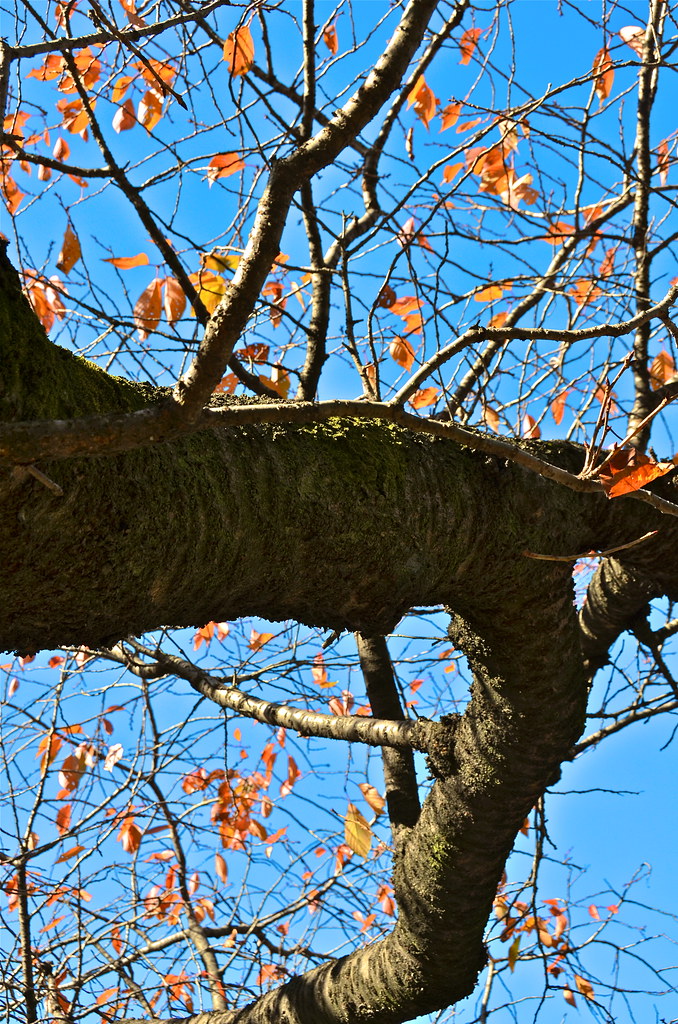
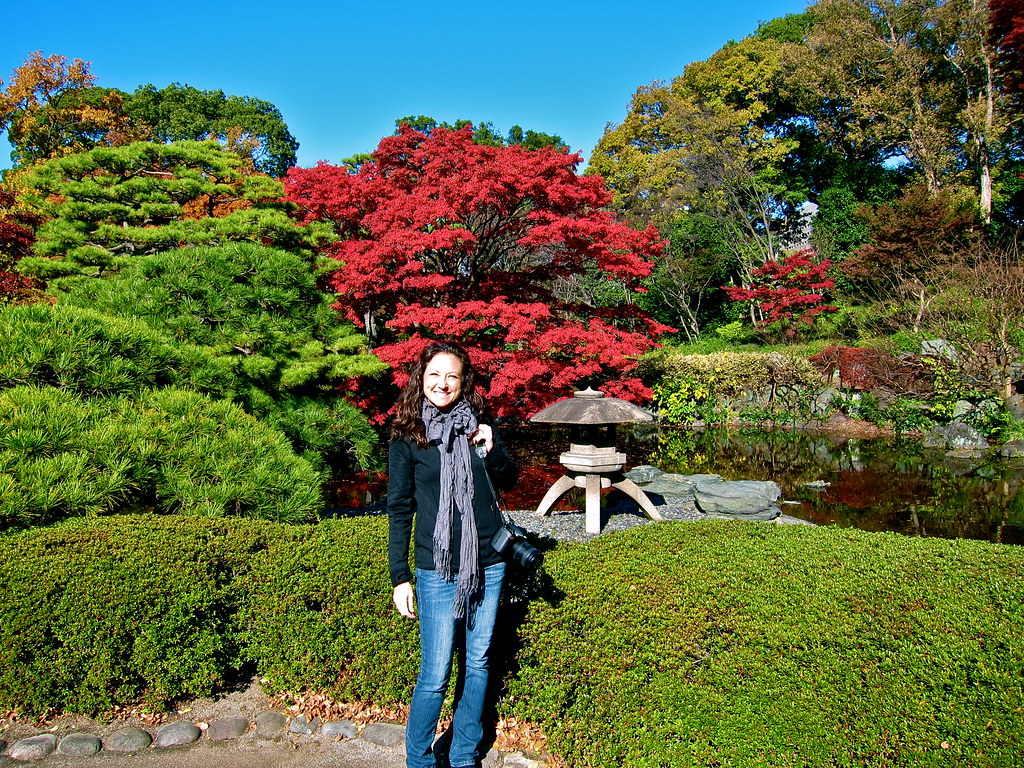
We don’t really have seasons in Florida so we just took it all in.
Around lunchtime we jumped on the train and went back to Ameyokocho market.
We stumbled upon a crowded “Sushi-go-Round” restaurant.
The sushi was creative and the restaurant was full of energy.
I took this video so you would be able to see it, too:
After lunch we did a little shopping and then went towards Tokyo Tower hoping to get there before the sun went down.
It. Was. Stunning.
We bought our tickets and took an elevator up to the Main Observatory.
It was such a clear night that we could see the sun setting behind Mount Fuji.
And the active city of Tokyo.
We took the 660 steps down instead of the elevator.
The outside stairway dropped us off at the base of the tower.
It was just the two of us down there so we just soaked it up.
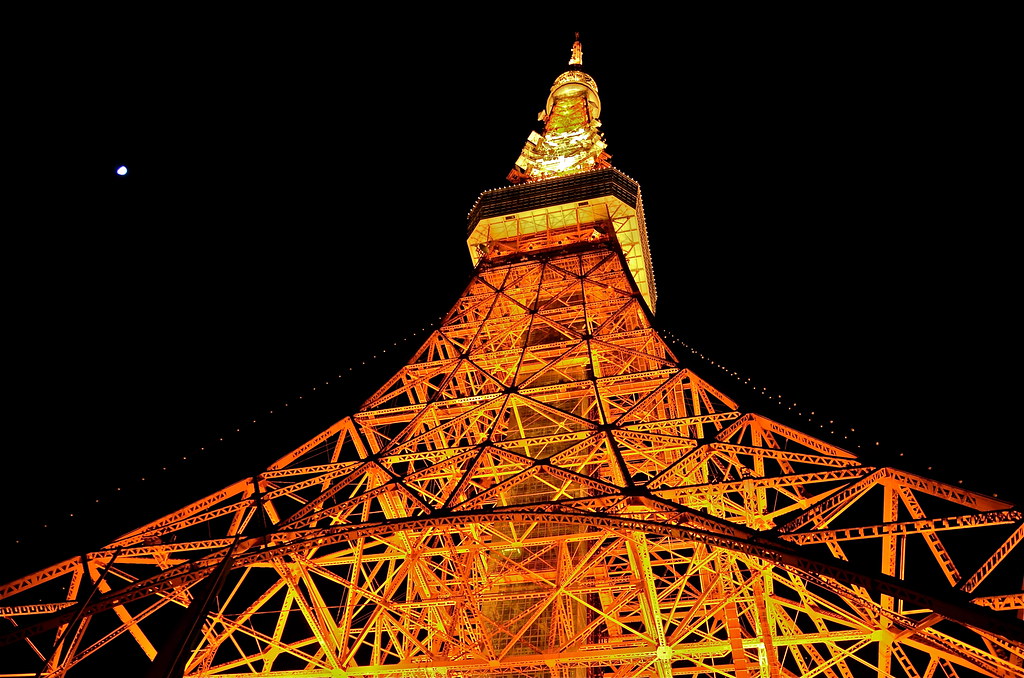
For dinner we went to a BBQ restaurant close to our hotel called Gyu-Kaku.
We ordered several different meats:
And grilled them on our personal charcoal grill.
So much fun!
Our last day was another gorgeous blue-sky day.
We had some time to kill before going to the airport so we walked to Koishikawa Kōrakuen Garden.
It is one of the oldest and best preserved parks in Tokyo.
Kōraku means “enjoying afterwards”.
The park was named Kōraku-en after a Chinese teaching of “a governor should worry before people and enjoy after people”.
The colors were so vibrant.
It was incredibly peaceful and we ended up hanging out there for a couple of hours.
The park is next to Tokyo Dome City so we jumped on the Big-O.
It is the world’s first hubless Ferris Wheel meaning it resembles a huge doughnut.
We had time for one last meal so walked down Hakusan Dori trying to decide what it would be.
Sushi. It had to be sushi.
We found another “Sushi-go-Round” restaurant and ate WAY too much.
And it was perfect.
One thing is for sure — if you enjoy eating good food and being around people with sincere hearts, put Tokyo on your list.
Until next time, Tokyo!
